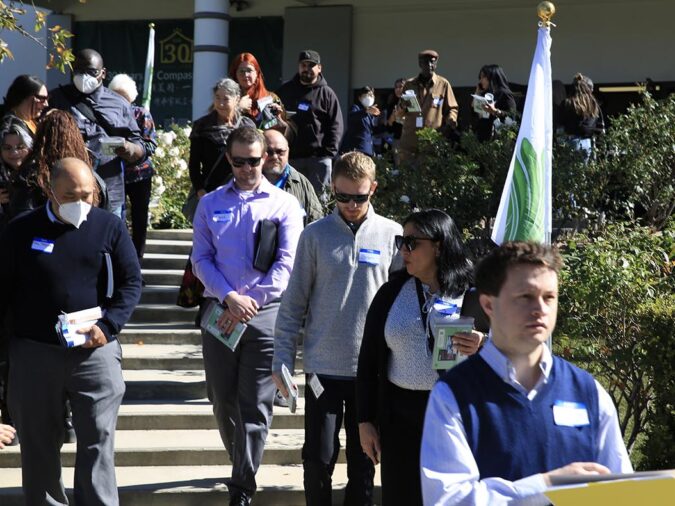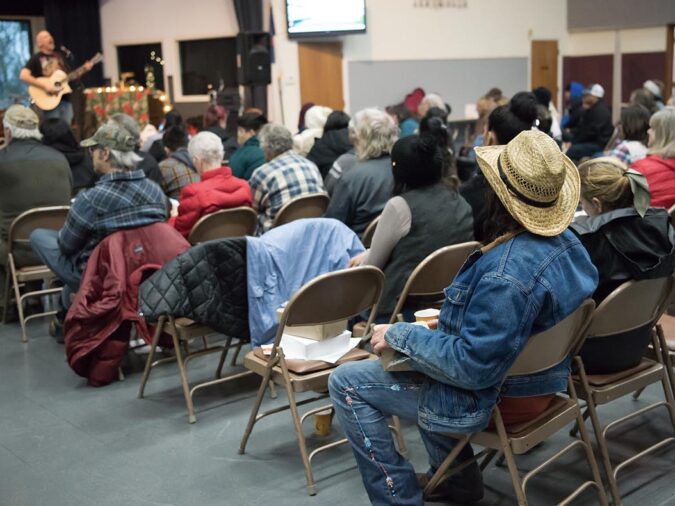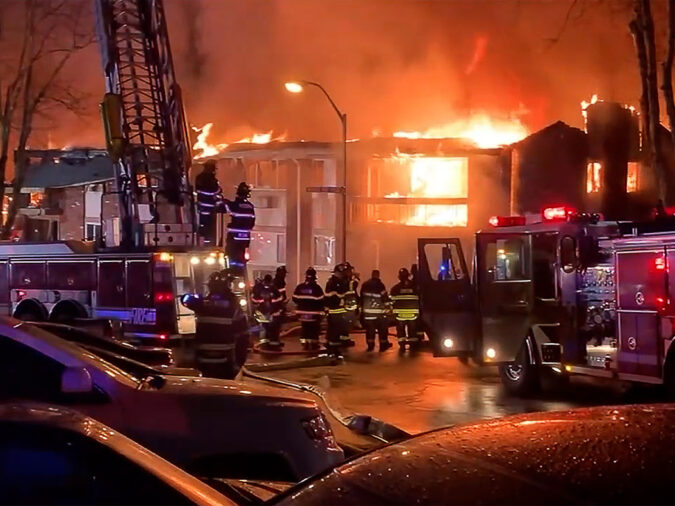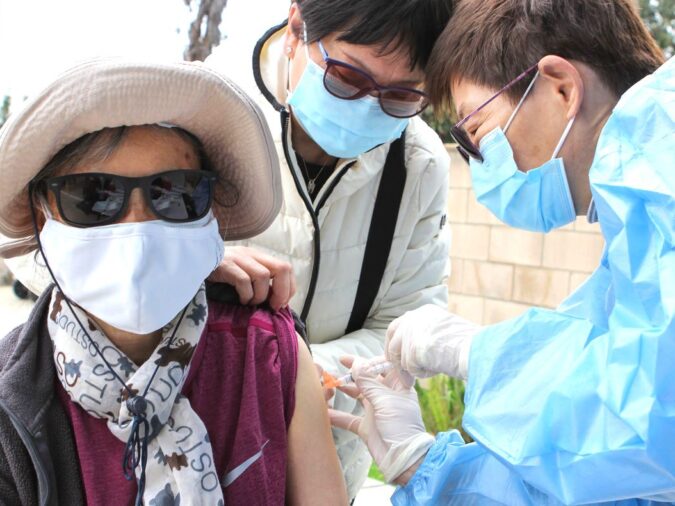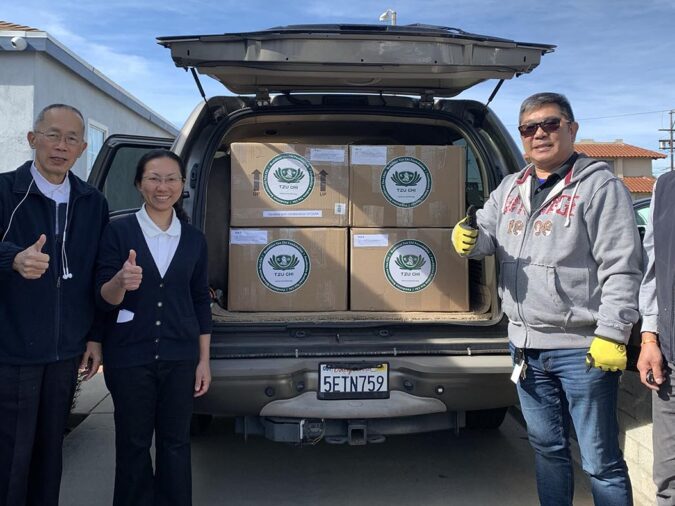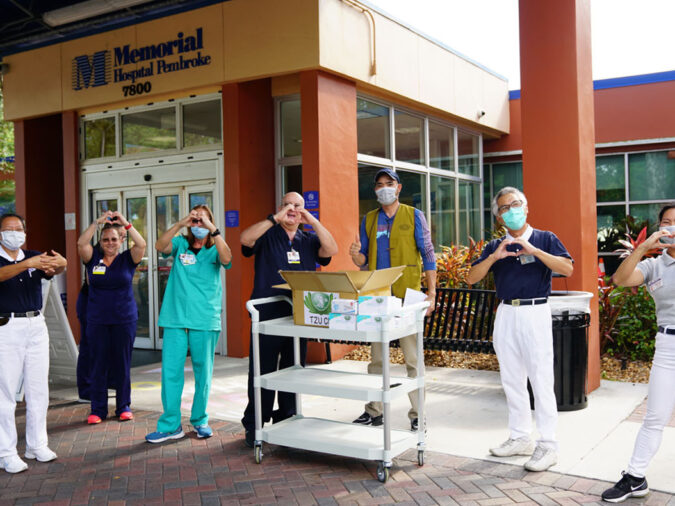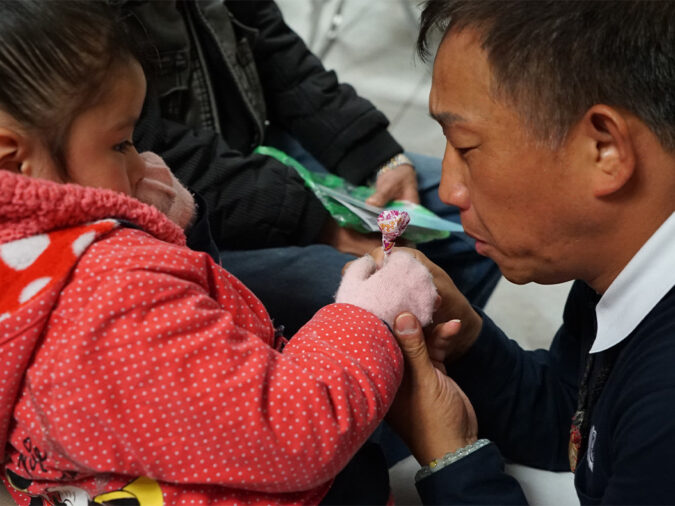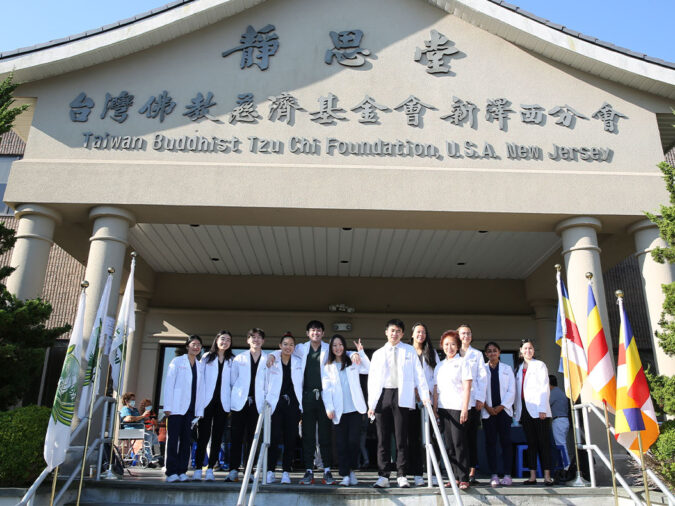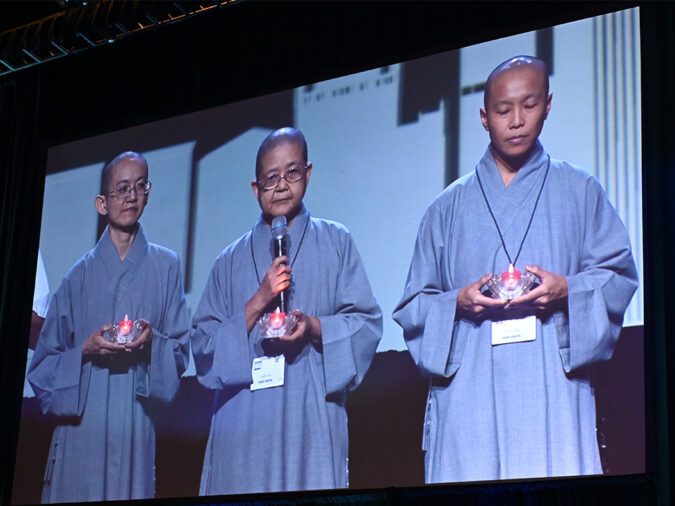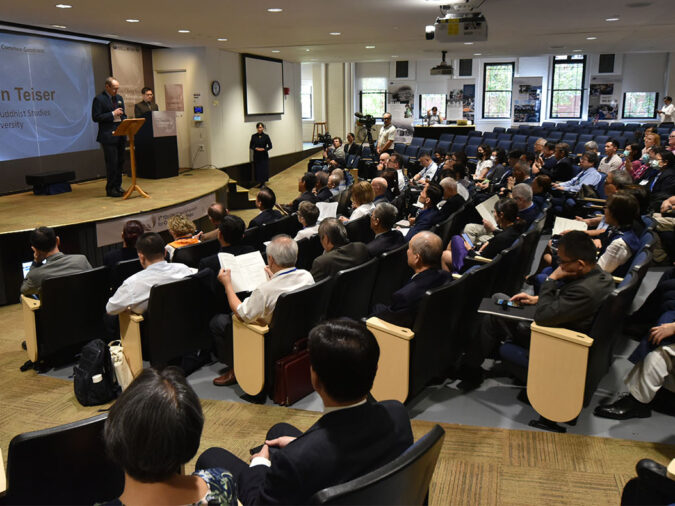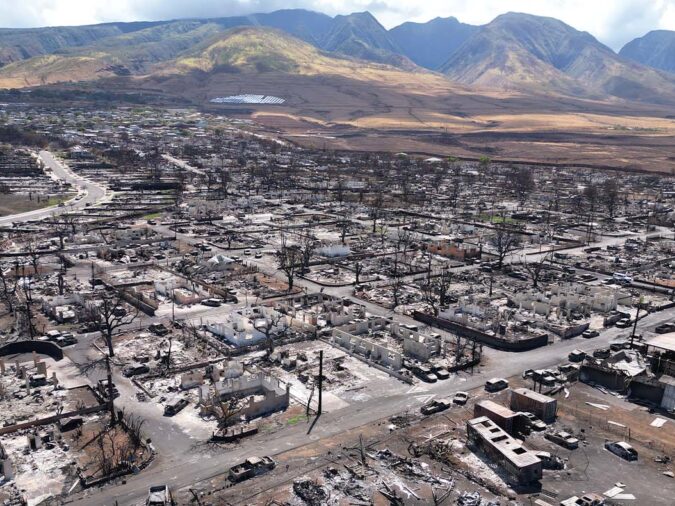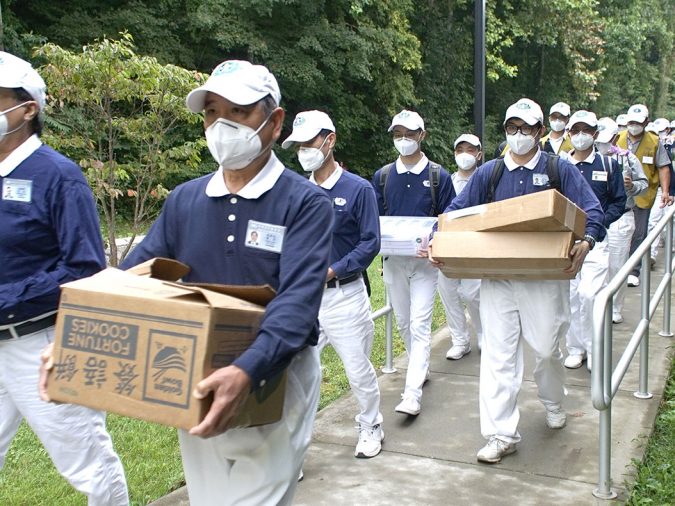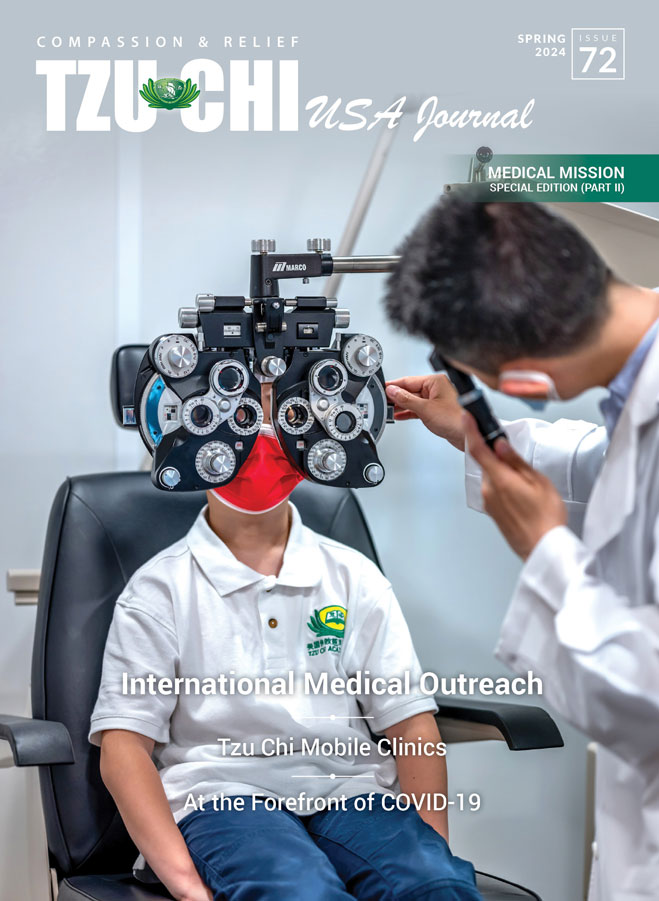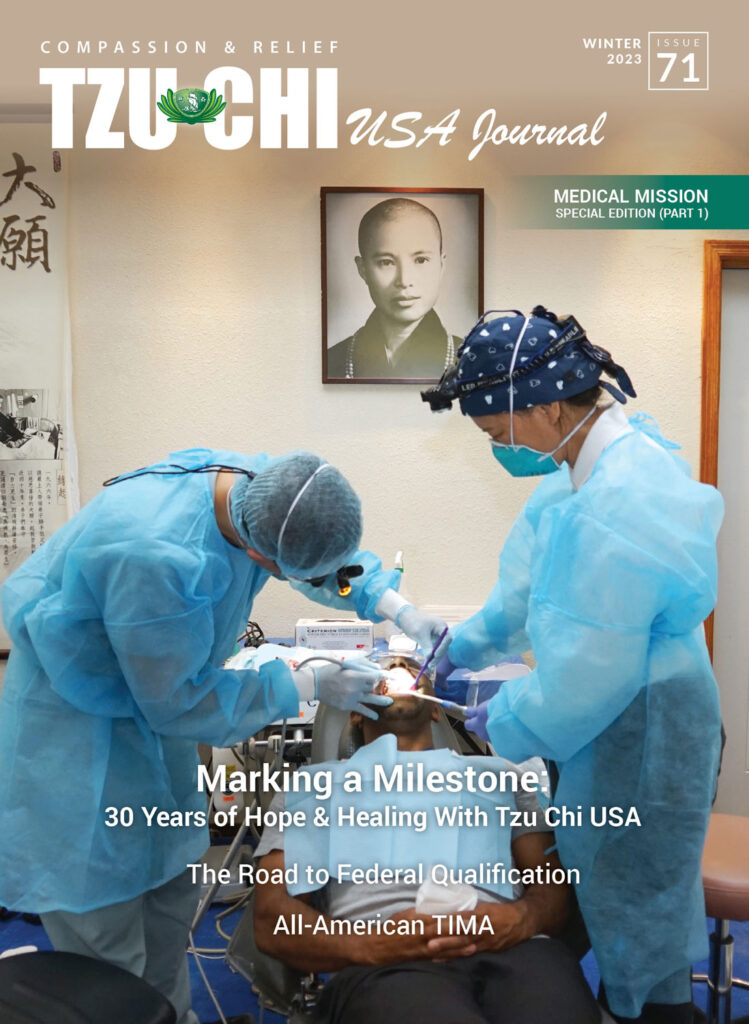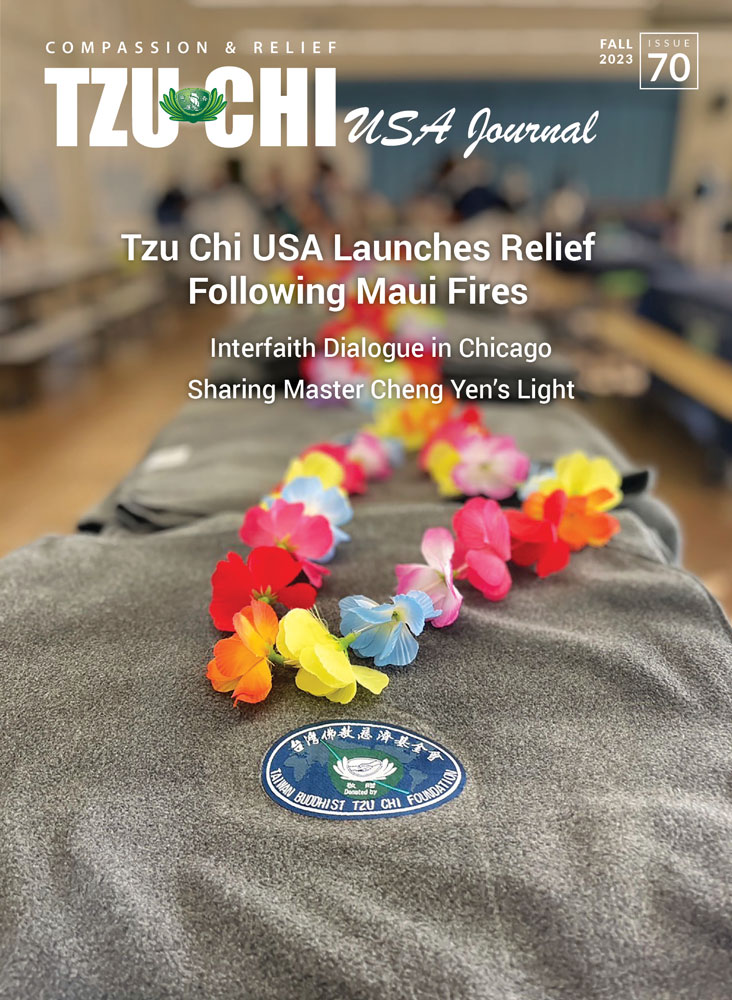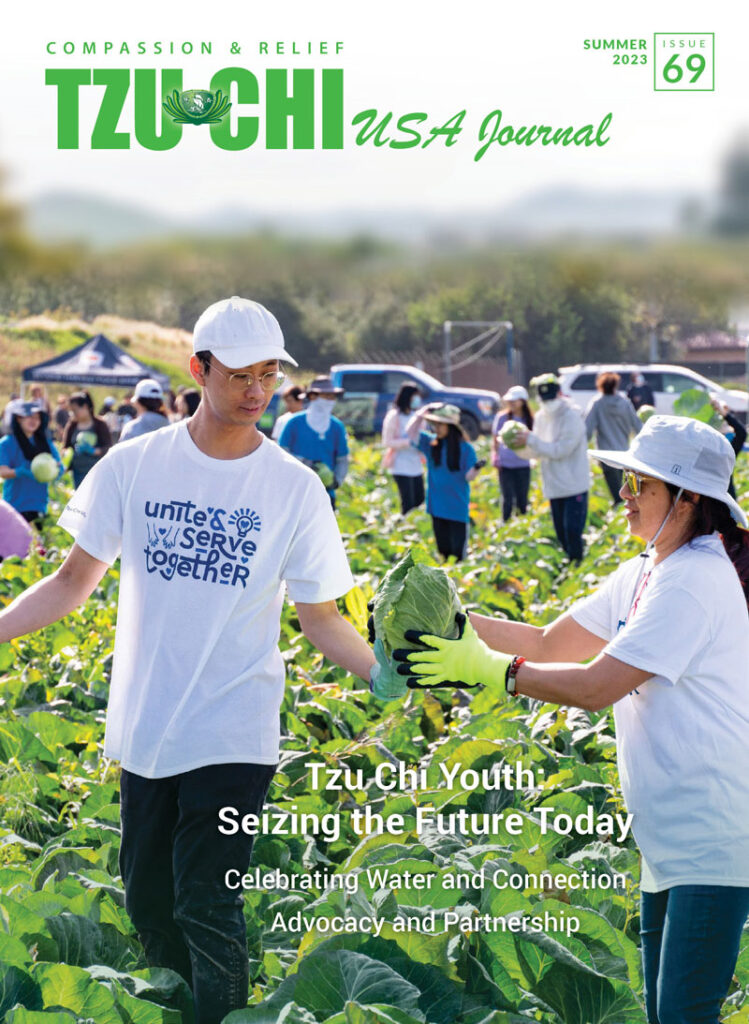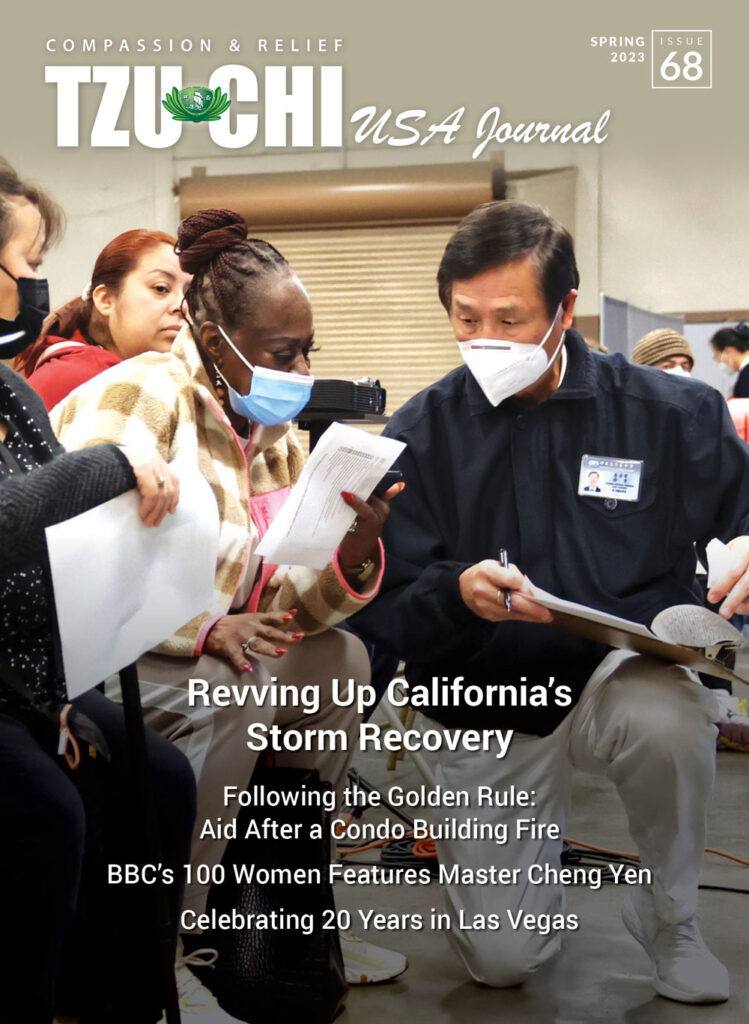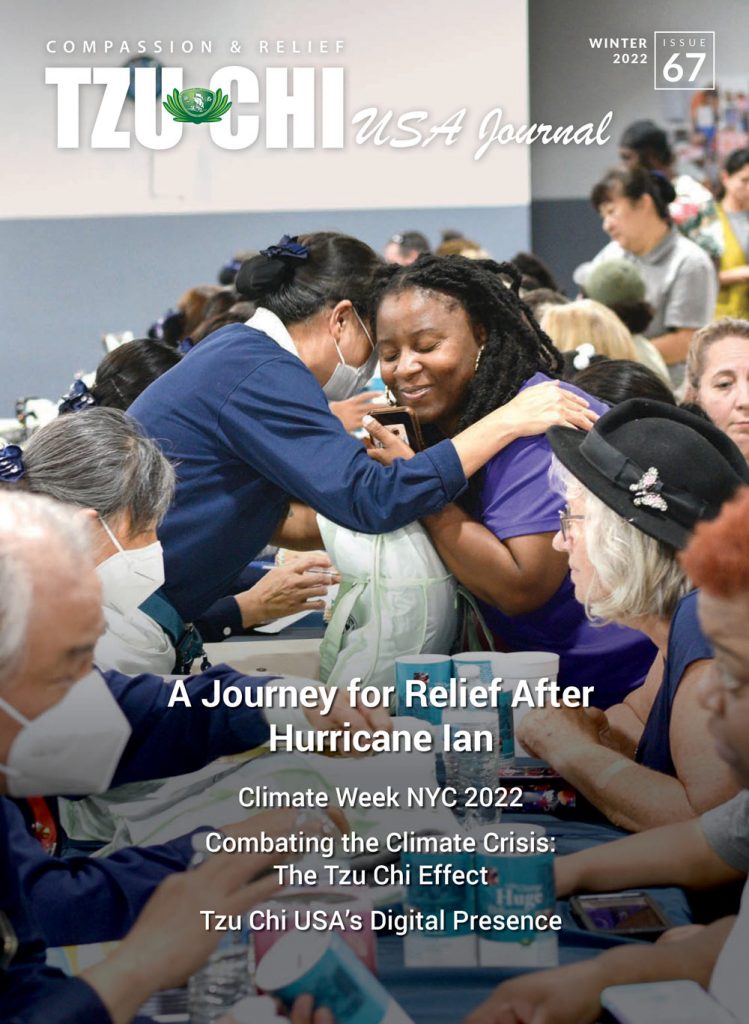Survivors Not Victims:
Revving Up Recovery in Storm-Battered California
Written by Ida Eva Zielinska
Published #68 | Spring 2023 Issue
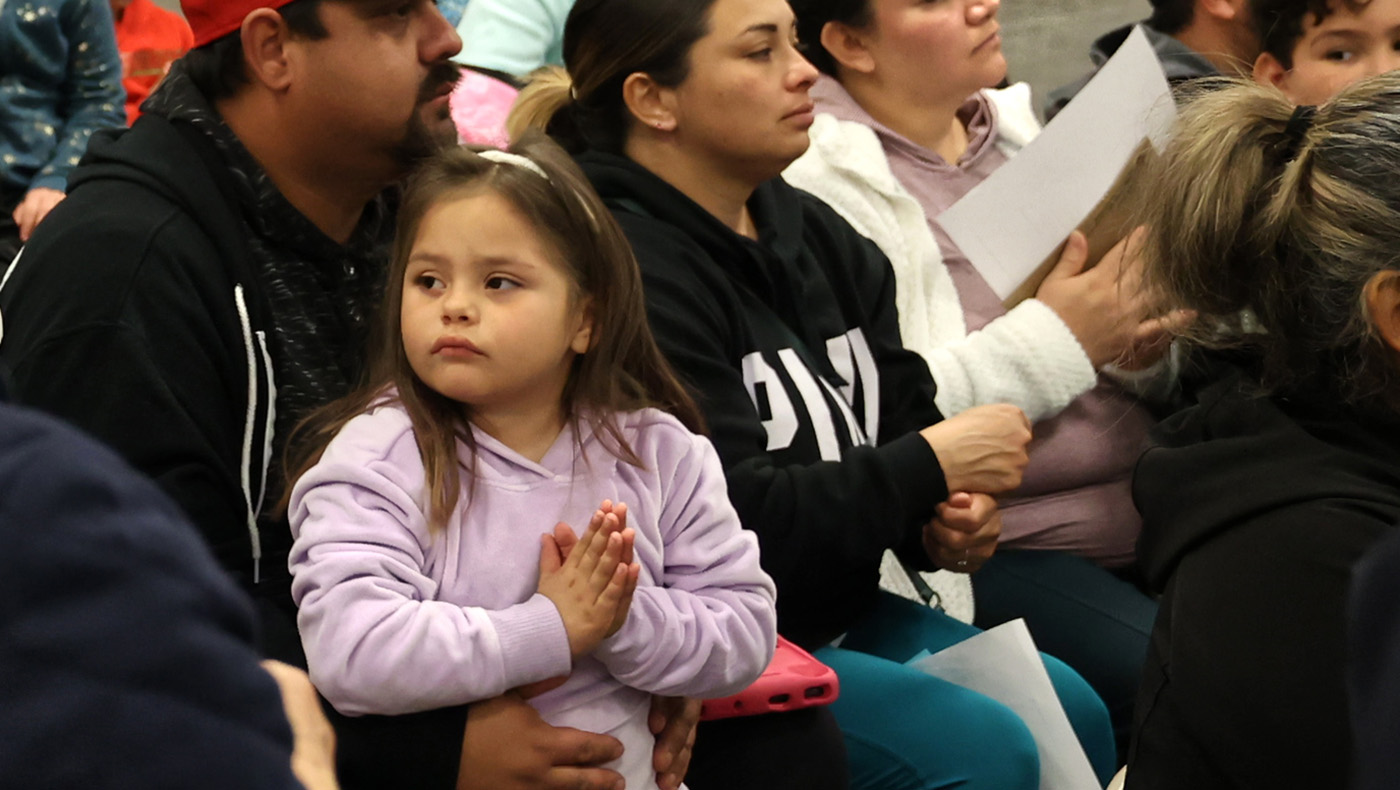
A little girl presses her hands together in prayer during the ceremony at Tzu Chi’s disaster relief distribution in Merced County, California, on February 4, 2023, her parents and other care recipients weary and yearning for better days ahead. Photo/Kitty Lu
SHARE
“I had never been in this situation before. I’d see it on TV but it hits you a lot differently when it hits you at home.”
Cynthia Hope Andrade
Tzu Chi Care Recipient
Two days after Christmas 2022, on December 27, a series of winter storms unleashed across California that would extend through much of January, bringing misery instead of the fulfillment of hopes and wishes for a terrific start to the New Year 2023. For a state more accustomed to wildfire or drought-related disasters and the ever-present anxiety about an elevated magnitude earthquake catastrophe, dealing with widespread winter storms of such intensity is a relatively new experience.
It didn’t happen as severely before. The scale is beyond what we’ve seen before. Now it’s more than fire; it’s flooding in California.
Minjhing Hsieh
Executive Director
Tzu Chi USA Northwest Region
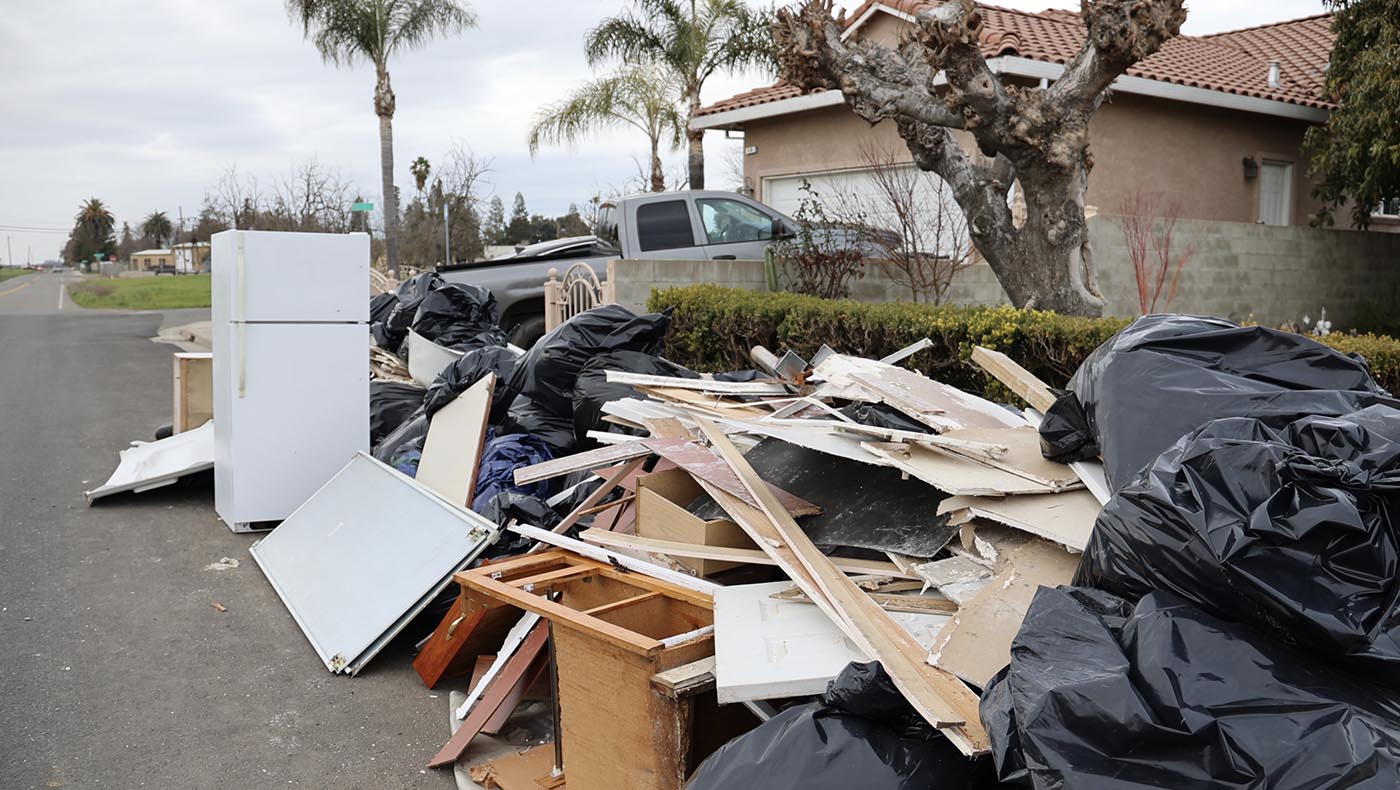
The sustained force and longevity of several atmospheric water systems responsible for the storms brought a plethora of dangerous and potentially deadly weather conditions, including heavy snowfall, torrential rain, and hurricane-force winds with multiple cumulative and compounding effects such as landslides, mudslides, failed levees, high flows and flooding along rivers and streams, urban flooding, debris flows, power outages, toppled trees, and more.
On January 8, California Governor Gavin Newsom requested President Joseph Biden to issue an Emergency Declaration for the State of California, which he did on January 14, making federal funding available to affected individuals in the counties of Merced, Sacramento, and Santa Cruz. The White House then added the counties of Monterey, San Luis Obispo, and Santa Barbara on the 18th.
During this prolonged, brutal storm crisis, the National Weather Service issued flood watches for roughly 90% of the state’s population. Government authorities placed over 96,000 people under evacuation orders or warnings at some point. Tragically, by January 18, the LA Times reported that California counties confirmed 22 had died. Thankfully many others managed to escape inundated homes and roadways on their own or with the help of water rescue task forces, family members, neighbors, or good Samaritans.
The residents of Merced County in the San Joaquin Valley suffered some of the most horrendous flood conditions. By mid-January, over 200 times the amount of rainfall compared to that month in 2022 had battered the County. Planada, a small census-designated farming community with a population of around 4,000, was among the hardest-hit areas, with hundreds evacuated after a recurrence of heavy downpours on January 9, a treacherous day many residents won’t soon forget.
Escape and Rescue
The survivors’ stories reverberate in shock and near disbelief that this happened to them as they recount the moments they decided to flee, then their narrow escapes and rescues. For Mercedes Perez, a single mother with three children, a seven-year-old daughter, and two sons, one age 12 and the youngest four – both boys on the autistic spectrum – the sense of danger dawned slowly.
I remember hearing water, and when I looked outside the window, I saw that water was rising up. All I know is I had to move my most important things up, and by then, the water was already rising to our stomach [level], and that’s when I knew it was time to go. I knew I had to hold on to my kids, and as I opened the door, the water started coming in. As I was walking, the water [was moving], I had my baby, my seven-year-old, and my oldest, and we were all holding each other… someone ended up coming and rescuing us.
Mercedes Perez
Tzu Chi Care Recipient
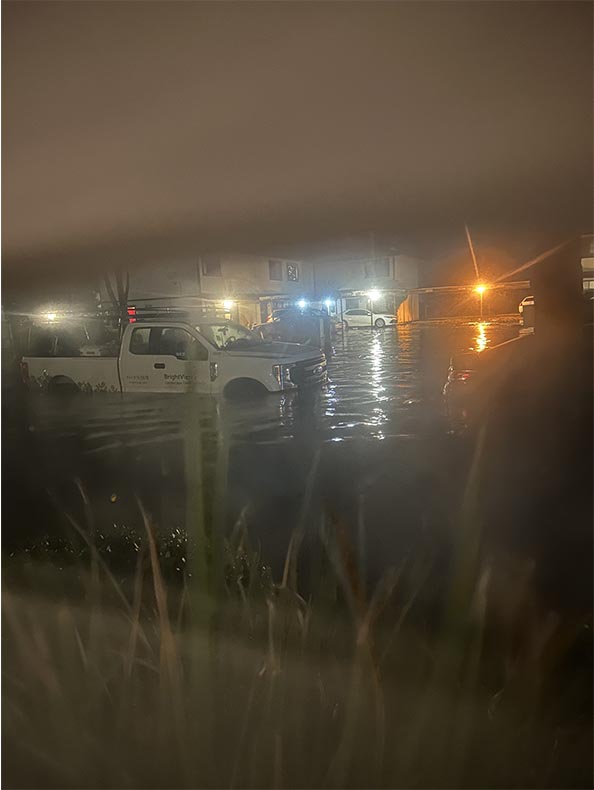
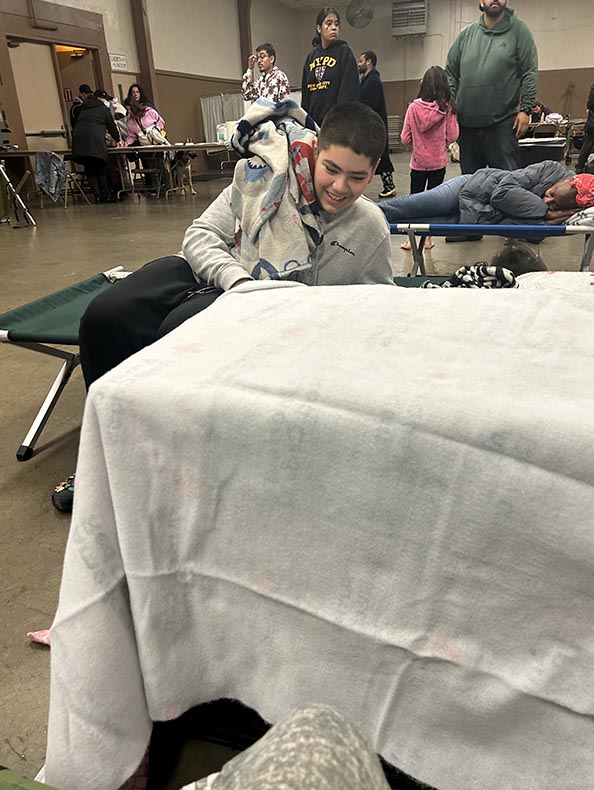
Cynthia Hope Andrade also had to escape after first trying to divert the flow of rising water away from the interior of her home.
I was trying with a broom, trying to push a lot of water out, but it kept coming back. When it rained the second time, it was so hard, the water had nowhere to go [and] just kept coming in, so we grabbed our dogs and what we could, and we barely made it out, but we made it out alive.
Cynthia Hope Andrade
Tzu Chi Care Recipient
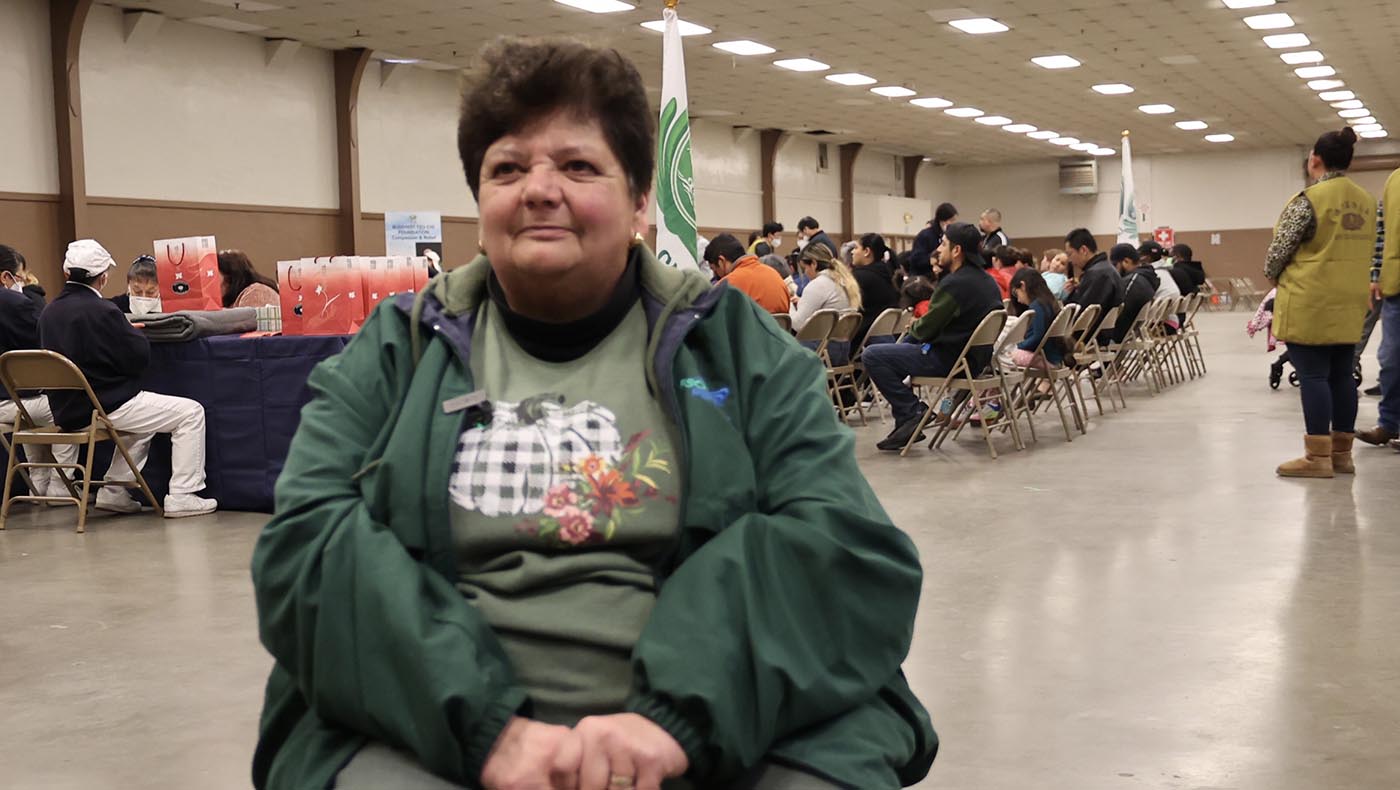
Fabi Cervantes, who would soon emerge as a powerful force helping people cope and recover, was also affected by flooding after two levees near her home broke.
It was raining very hard, and I happened to look outside my door, and I saw water coming around the corner into the front of my street, and I had a bad feeling. We barely made it out in [my husband’s] truck. The water was moving pretty swiftly. It was taking over the cars. And I could see people behind me; their cars were floating already. People were being rescued in boats, the search and rescue team came out, the Sheriff’s department, we were all taken out in a very short period of time. Those who refused to leave because they thought they could save their homes were forced to evacuate because we were underwater.
Fabi Cervantes
Volunteer Community Leader
Tzu Chi Care Recipient
Many reported a lack of prior notice of impending danger, “I thought in a disaster they would go with the loudspeaker, someone warning people,” Cynthia bemoaned. Fabi experienced the same, “We didn’t get any notifications that water was going to take over our little town of Planada. I couldn’t get my mother out from next door because the water was already in her house. They had to carry her through all the water, which was rushing fast, pushed by force.”
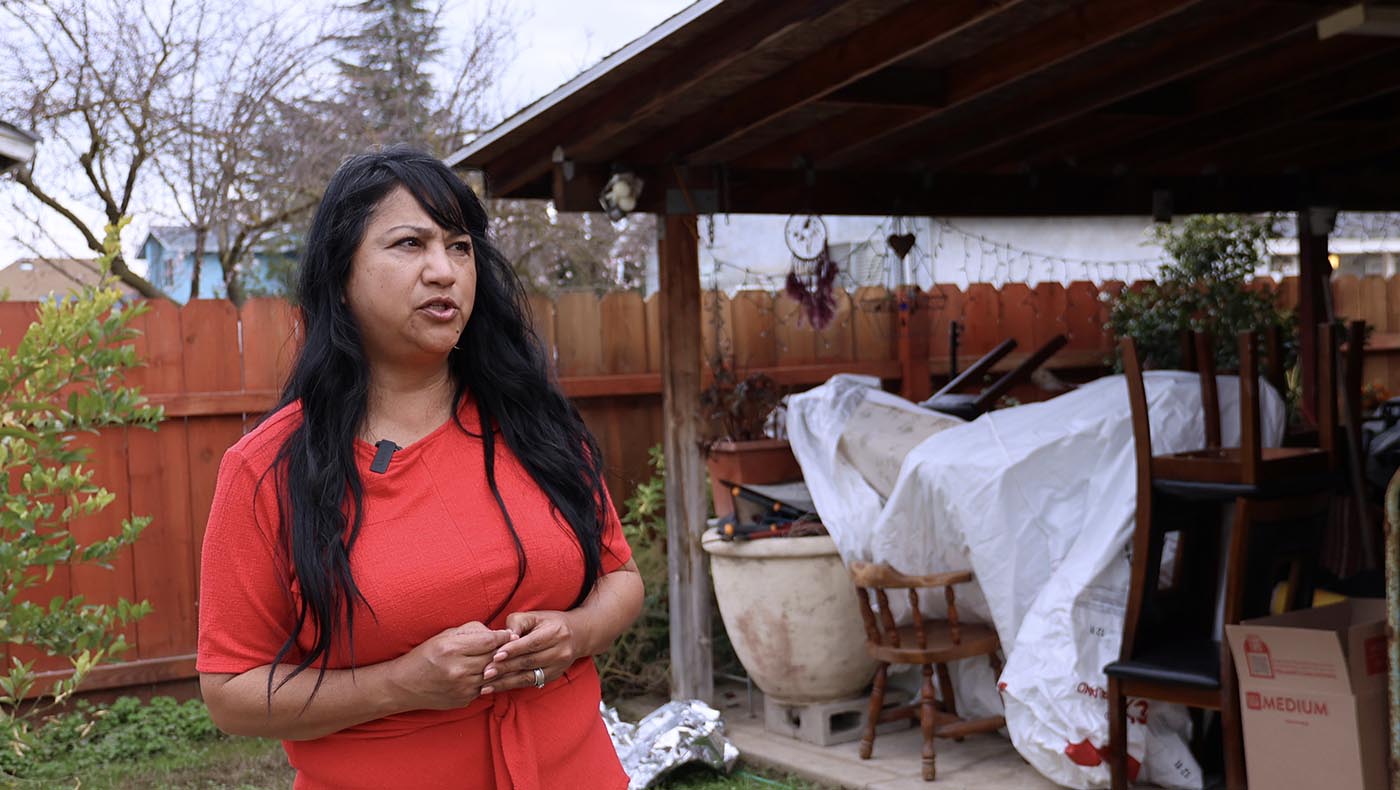
“I was rescued at 2:30 in the morning by a fireman, and he carried me out from my house on his back,” Susan Devine, another Planada resident, narrated, noting that arriving at a shelter, it was clear that even the Red Cross was unprepared, with needs surpassing capacity. “They were caught off guard just like everybody else, and the room was filled with cots and blankets, and it was all full, so we were forced to sit at tables, being wet and everything, and they only had water,” she recalls, relieved that her daughter came to get her at 6:30 and took her back to her house.
Loss and Trauma
The last time Merced County experienced flooding was in 1997, so this winter storm catastrophe was an unexpected shock, to say the least. For those impacted, there was the trauma to contend with, then an overwhelming sense of loss when they returned home and saw all the water-inflicted damage. “When we came back Friday night, it seemed like a tornado had just hit inside the home, and a lot of memories were underwater; it was just horrific,” Fabi Cervantes recounted.
Planada was underwater, and we’d never experienced anything like this. That’s why a lot of us are still suffering from post-traumatic syndrome because we weren’t prepared. Some of us had to leave our pets behind, come back in two days to pick them up, and see if they were still alive, and that was very heartbreaking because we didn’t know what to expect.
Fabi Cervantes
Volunteer Community Leader
Tzu Chi Care Recipient
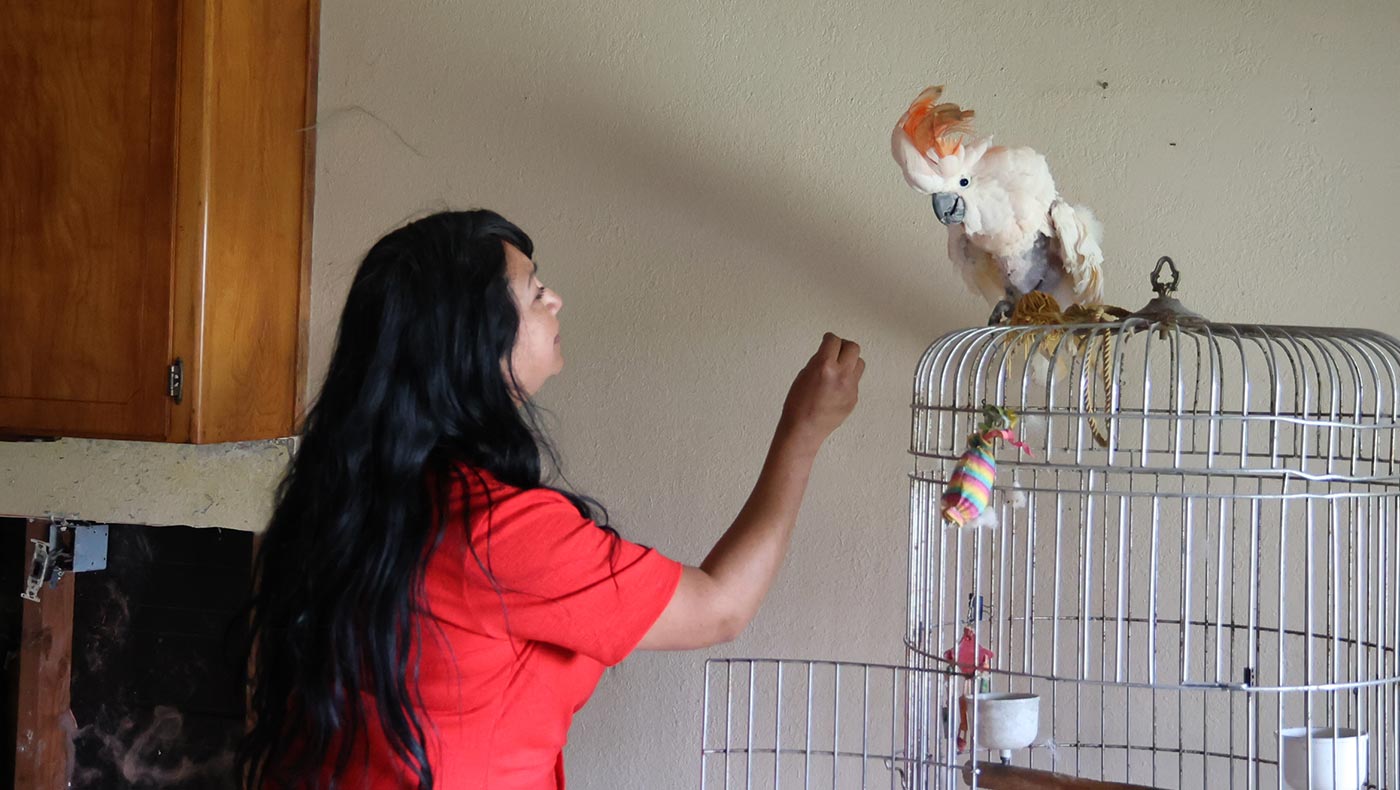
Mercedes Perez revealed that the disaster experience had left a mark on her kids. “Whenever my daughter hears rain, she thinks it’s going to flood again, and I have to make sure that she feels safe.” To boost the little girl’s confidence, she’ll explain, “We already went through it the first time; we can make it again,” although the mother quietly harbored her own worries. “What was going through my mind was, ‘How am I going to get everything back again?’” Mercedes divulged.

I came home to big devastation, big devastation,” Susan Devine explained, yet cleaning up the mess was just one layer of what all the survivors faced. Fabi spoke of the mold after the flood water receded and the smell, “Our water was mixed with sewer water. A lot of us still don’t feel safe drinking water from the water faucet. We’re getting donations of water.” As a volunteer community leader with Planada in Action, a group of residents, this combination of needs motivated Fabi to start a hub at the center of town in Planada’s community center, from where to offer a variety of aid.
Concurrently, several government agencies were also already mounting disaster relief. The U.S. Federal Emergency Management Agency (FEMA) set up a Disaster Recovery Center (DRC) in Merced, the County seat, just a nine-mile distance from Planada.
We provide financial assistance for those individuals who have had any damage. When we can’t provide any assistance, we refer them to organizations that can help them with their recovery efforts. When FEMA is done in the state, then the voluntary organizations are the ones who help them in their long-term recovery efforts.
Maria Figueroa
Public Information Officer
FEMA
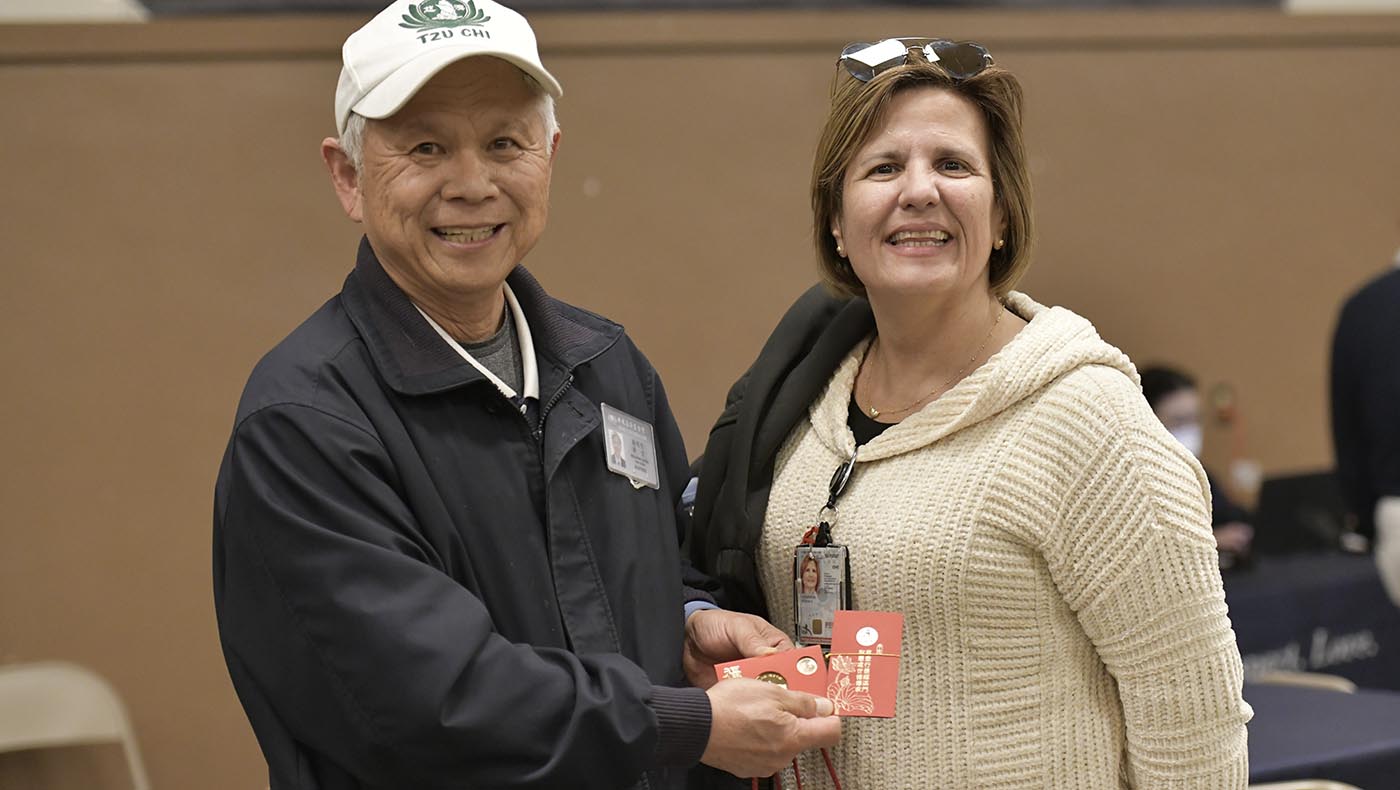
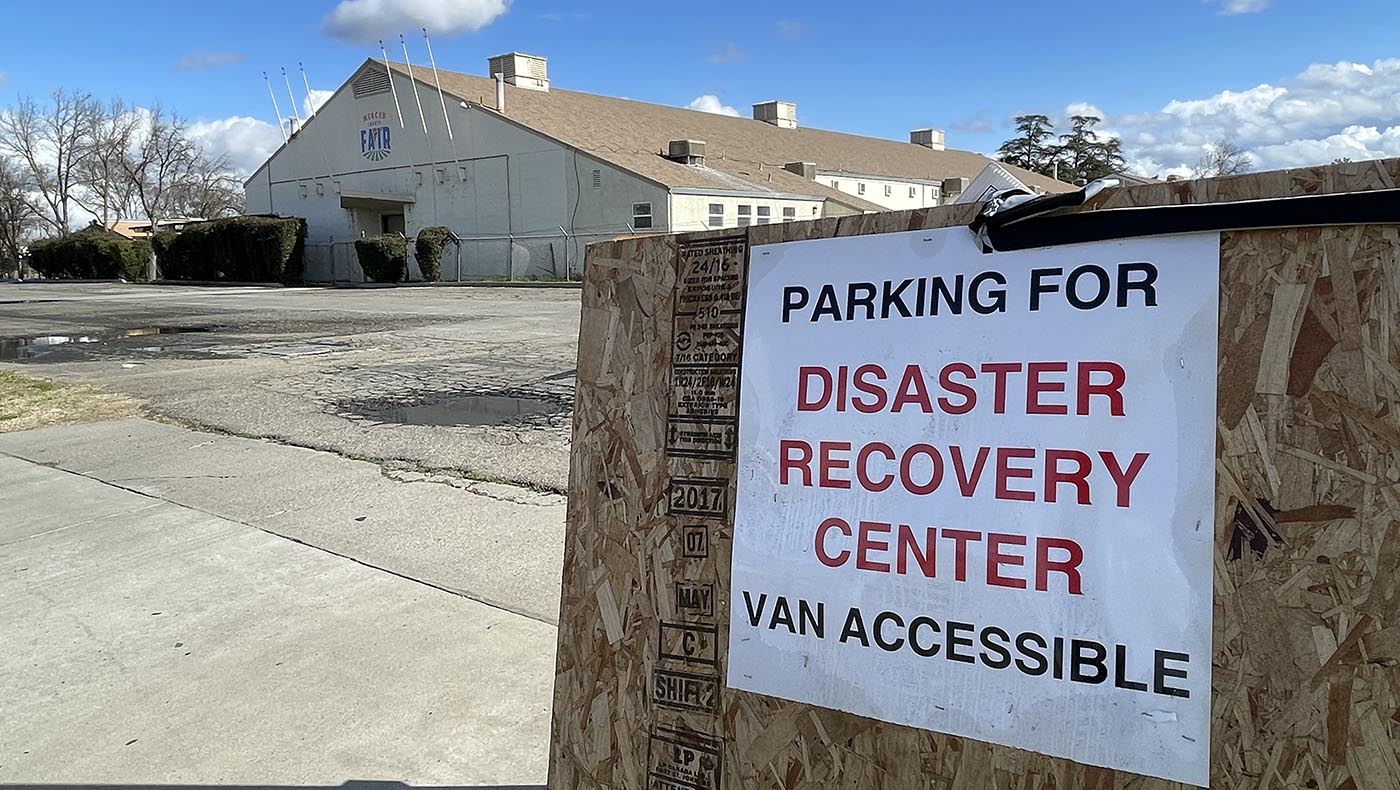
“The Office of Emergency Services in California State, OES, contacted us to invite us to join this DRC set up by FEMA,” Minjhing Hsieh, Executive Director of Tzu Chi USA Northwest Region, explained. Over the years, Tzu Chi volunteers from Modesto and Fresno provided isolated wildfire relief in the general area, but further northeast of Merced County, closer to Yosemite National Park. Thus, the upcoming large-scale flood relief operation here would be a first for the Tzu Chi USA Northwest Region team. “It’s the beginning of new opportunities to serve more people here,” Hsieh declared.
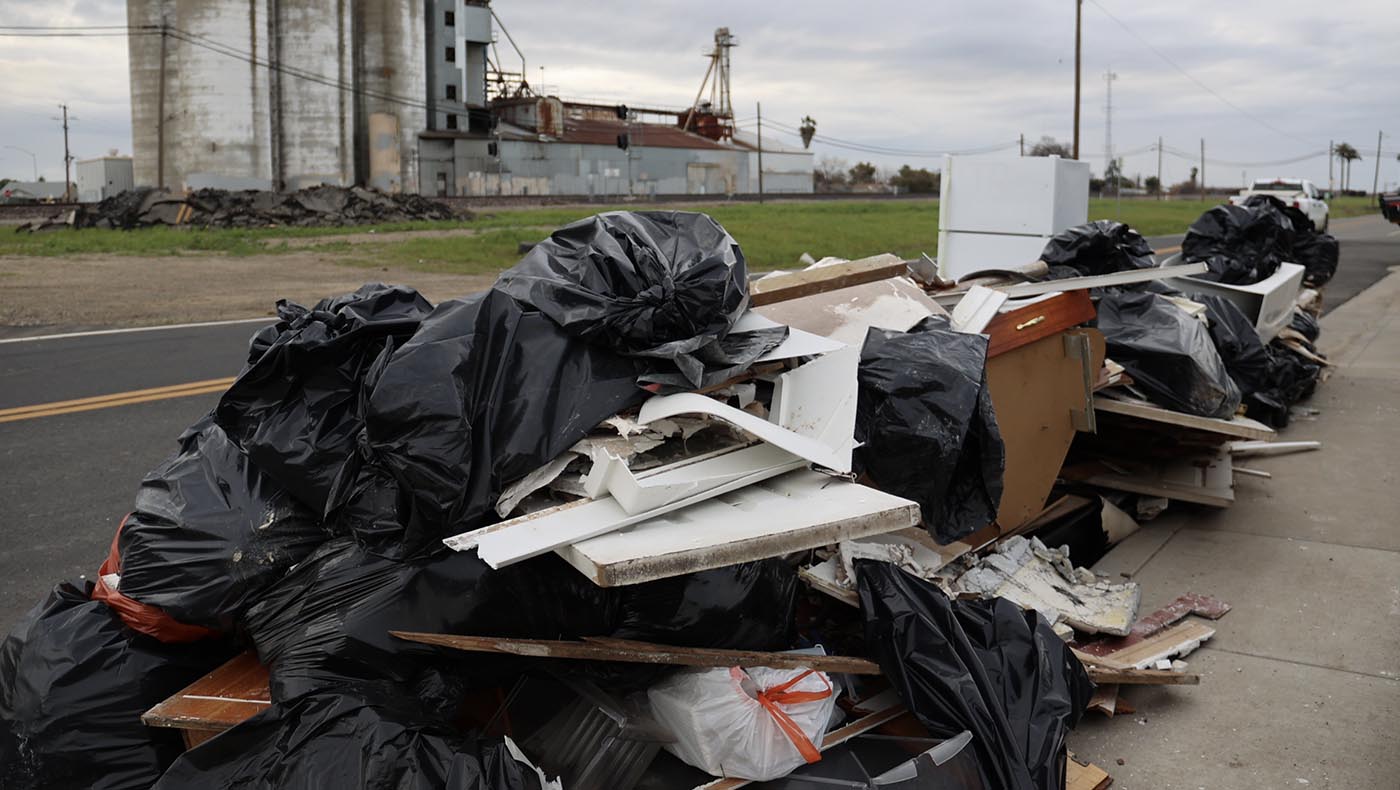
Moreover, compared to the team’s last flood relief activities in Northern California, following the historic flooding in Silicon Valley in February 2017, the needs of this mission were quite challenging. They could remain so in the long run.
The 2017 flood was concentrated in the San Jose area only, but this time, it’s very widespread. Actually, entire California is affected this time. It’s very difficult to make a disaster assessment because it’s such a wide area. We have to listen to the news; we have to talk to the counties and the state agencies to find the places we should focus on, visit, and make a more thorough assessment. So, it’s very difficult to prioritize.
Minjhing Hsieh
Executive Director
Tzu Chi USA Northwest Region
Locals Band Together to Help
Even before Tzu Chi’s first disaster relief distribution at the FEMA DRC, scheduled for February 4, the Merced County government and Planada in Action resident group had been doing their part to help those impacted. The Planada in Action team has been there from the beginning, from that terrifying night of January 9 when so many residents evacuated, operating from their hub in the middle of town.
We’ve been receiving donations, people picking up water, picking up cleaning supplies this week, blankets, toiletries. It became the center hub for everybody to come and pick up hot meals because a lot of people lost their appliances, so now people have a warm meal. They can take a hot meal home, as many as they want, and in the meanwhile, their houses are being worked on.
Fabi Cervantes
Volunteer Community Leader
Tzu Chi Care Recipient
The Merced County government was also on the frontline of assistance, bringing a well-informed understanding of the ongoing needs in the area and those related to the current crisis.
Merced County is a majority agricultural area. You know, dairies, almonds, so it’s all low-income, undocumented farmworkers that take care of all the labor here. That’s why it’s so hard. It might take us a little bit longer to recover. We’re doing our best to help, provide the resources with FEMA and other organizations, hopefully, let’s say, make it better for the communities.
Rodrigo Espinoza
District One Supervisor
Merced County
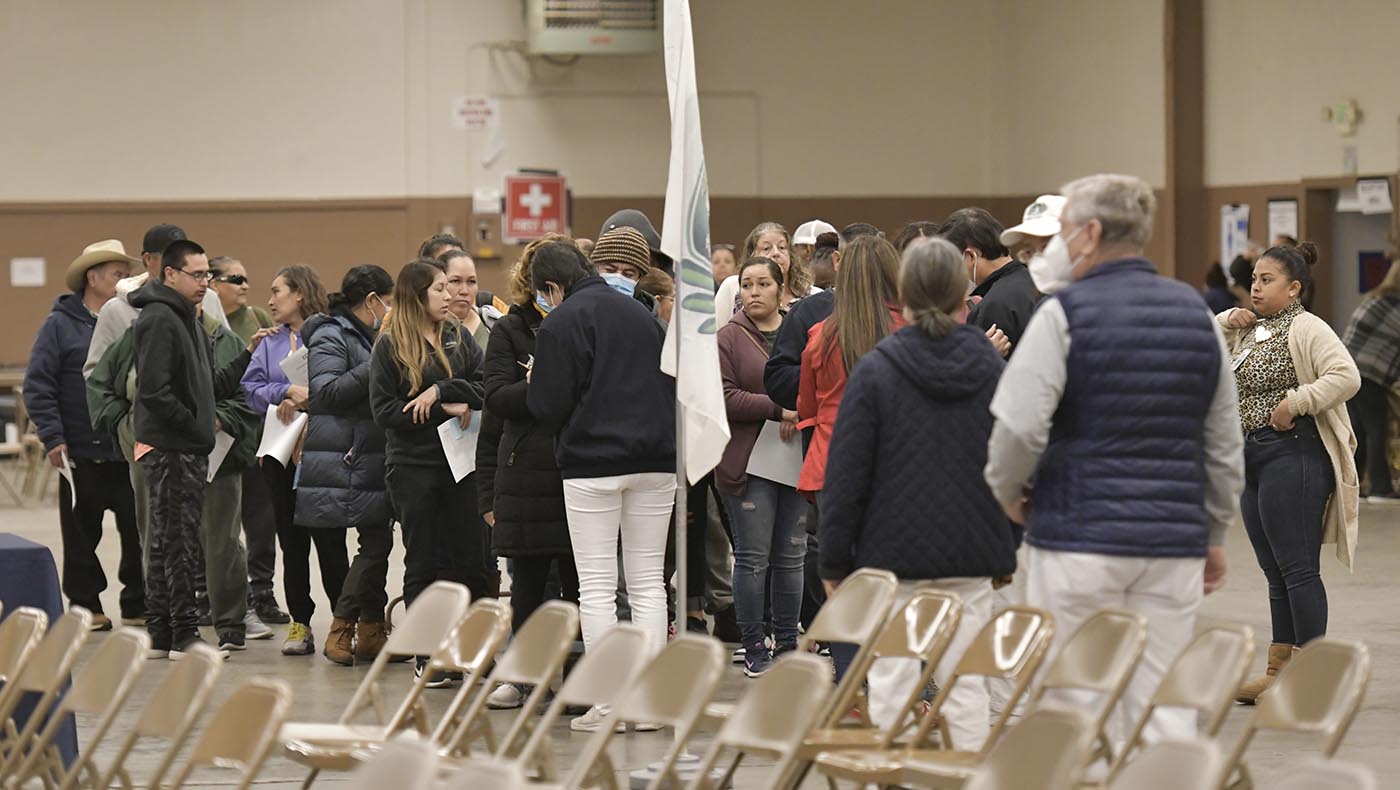
Another pressing issue for many here after being displaced is housing. “Right now, they have us in a temporary place until the 28th, and whether we have a place or not, we have to leave. Everybody that lives there has to leave that day. And that’s scary because we don’t know what we’re going to do,” Planada resident Cynthia Hope Andrade disclosed woefully. However, she and her husband will eventually be able to return to her uncle’s property once they complete repairs. For others, the road ahead is less clear and more fraught with obstacles.
Housing is very difficult to obtain. Before the disaster, there were hardly any rental locations available. Unfortunately, a lot of the community are renters. Some of them won’t be able to go back. Some [landlords] don’t want to fix their houses right away. There are delays with insurance, with being able to remodel their homes. And so, you know, it’s harder on people.
Rodrigo Espinoza
District One Supervisor
Merced County
In such a precarious situation, the cash cards Tzu Chi USA was about to provide could feel like a gift from heaven, and one wrapped in love.
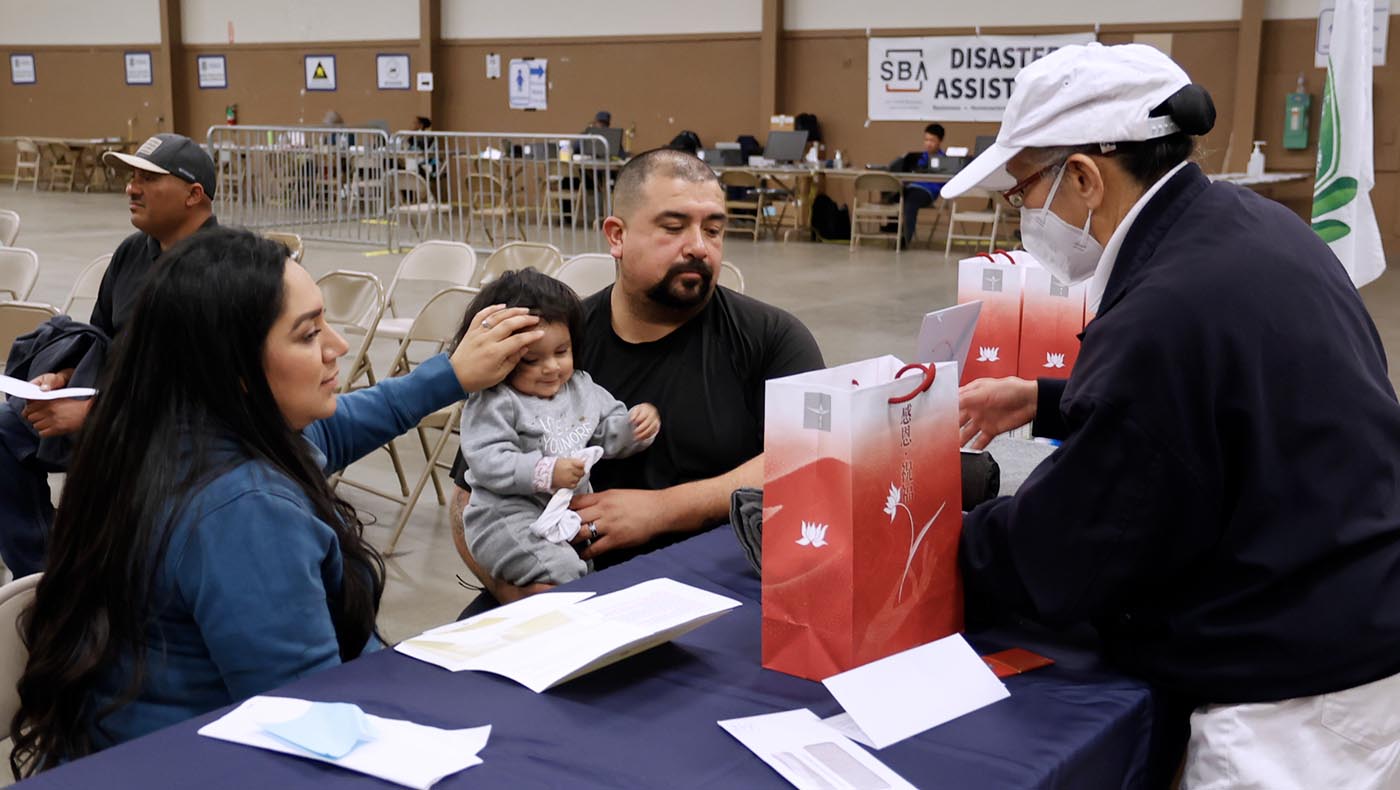
Love Almighty
On February 4, a team of 43 Tzu Chi USA Northwest Region volunteers traveled to the DRC set up by FEMA in Yosemite Hall at the Merced County Fairgrounds to participate in Tzu Chi’s first disaster relief distribution for the January 2023 winter storms. For many, it was their first time visiting and serving in this County.
SHARE:
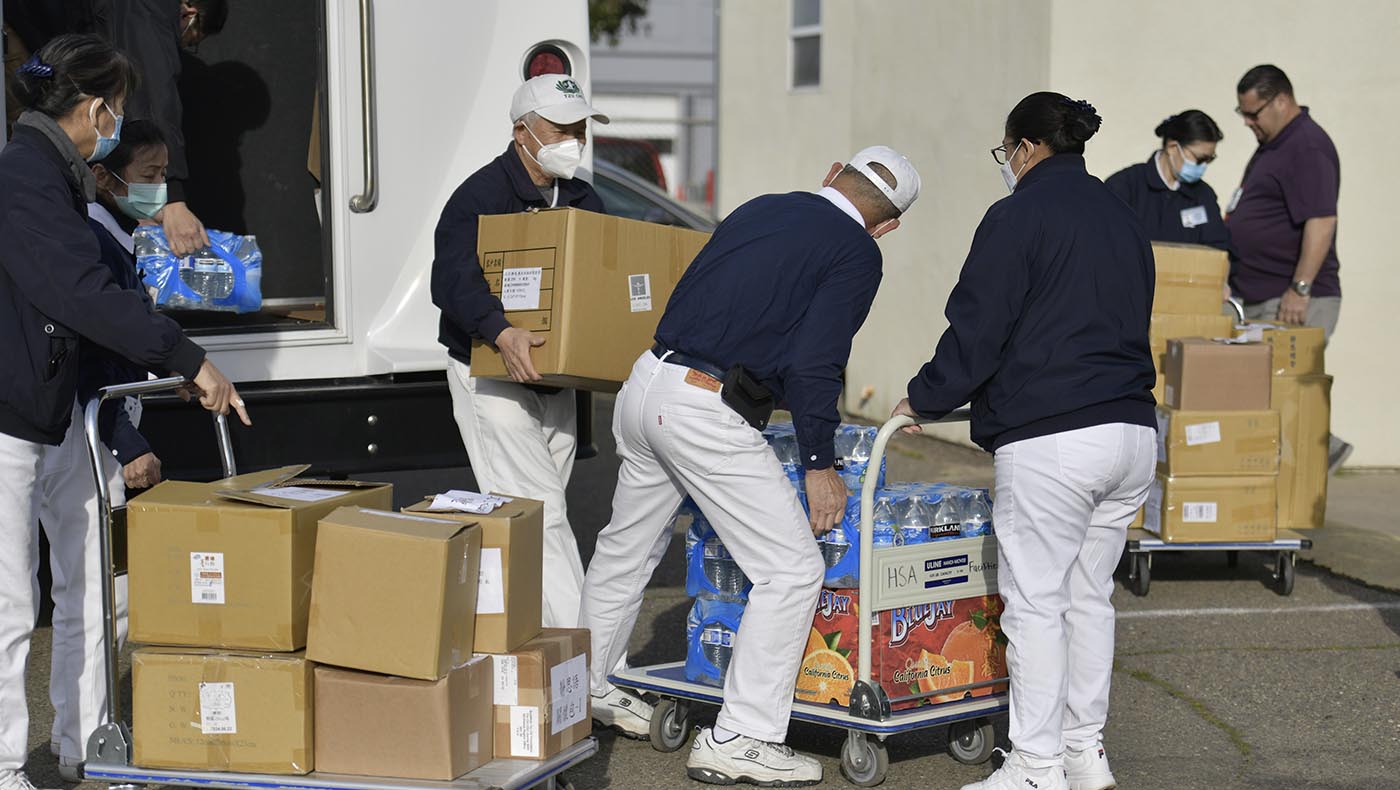
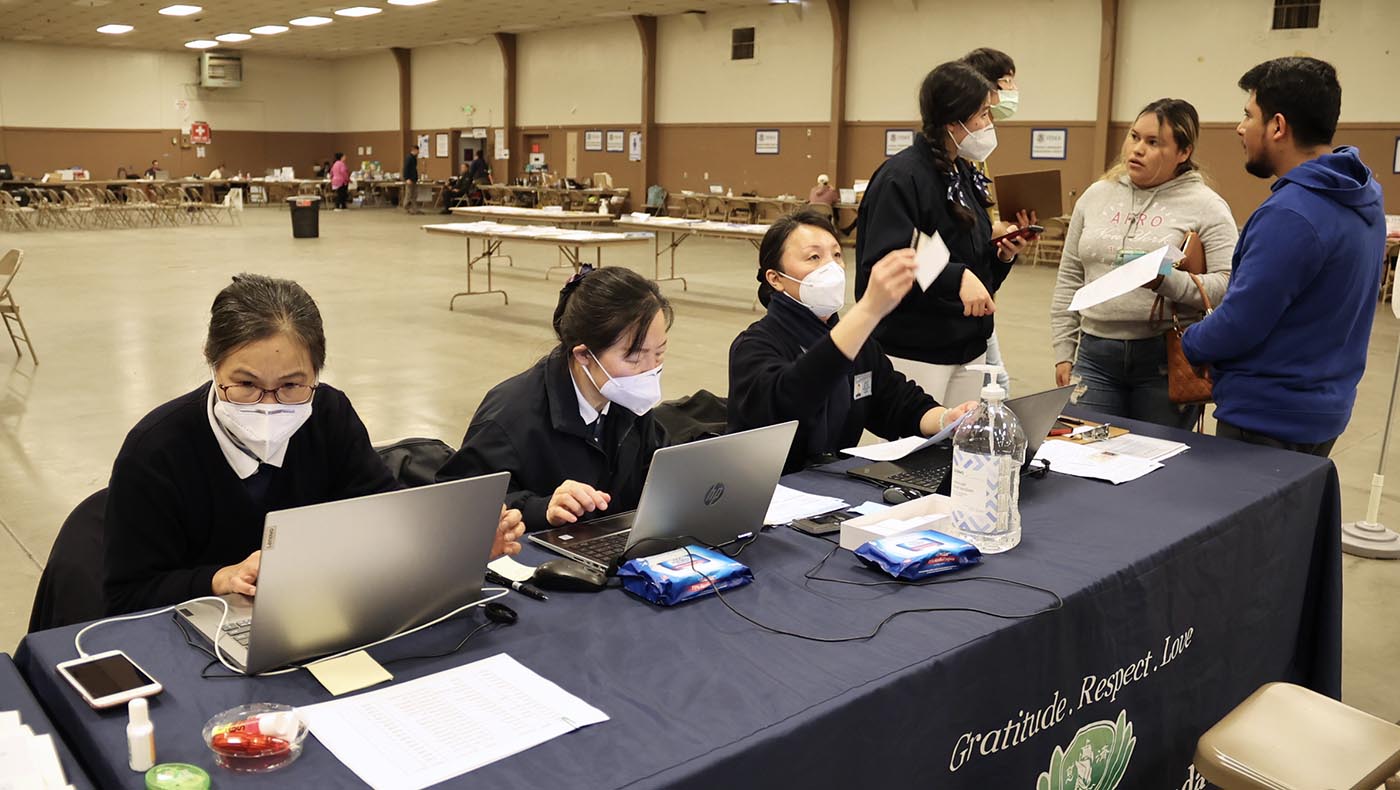
When volunteers go to a place for the first time, they feel very inspirational being able to provide direct assistance to people in a very timely manner. That’s a very great experience for volunteers.
Minjhing Hsieh
Executive Director
Tzu Chi USA Northwest Region
Merced County employees also came to help, some volunteering to assist with Spanish translation or to guide people through the protocol at the DRC.
![Merced County employee Nancy Diaz volunteers to translate for Spanish-speaking care recipients, sharing, “They’re very emotional and grateful to [Tzu Chi] for helping.” Photo/Kitty Lu](https://media.tzuchi.us/wp-content/uploads/sites/8/2023/03/13122935/TzuChiUSA-journal-68-NCA-Storm-Relief-_0016_20230204-Merced-LAC-Distribution_KittyLu-97-of-162.jpg)
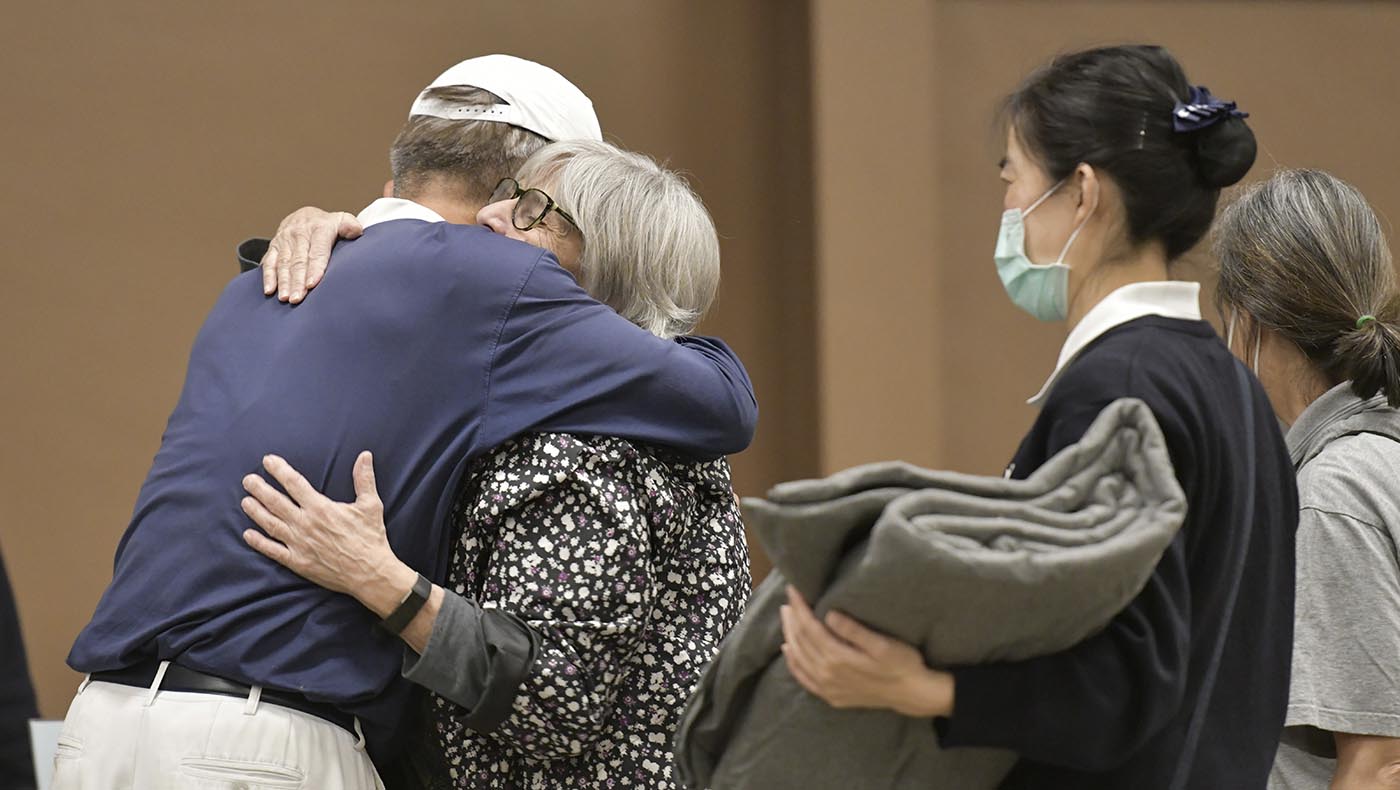
As for Tzu Chi volunteers, they were bringing more than merely financial assistance. The team was also there to offer moral support through a listening ear, a shoulder to cry on, or an ever-ready warm hug.
I’ve been hugged, and held, and that is very important for all of us to do to one another, and that will get me through, you know?
Susan Devine
Tzu Chi Care Recipient
They were very compassionate, very caring, very natural. They were showing their love naturally. And they just conversed with me, made me feel, you know, not scared anymore because I’ve been doing a lot of crying, because I’m, I’m just like that. I don’t know how to thank everybody enough.
Cynthia Hope Andrade
Tzu Chi Care Recipient
Receiving Tzu Chi’s aid was a novel experience for this community, and they were taken aback by the ceremony during the event. “I didn’t know what to expect when I got here, and this was beautiful,” Fabi Cervantes told the volunteers. “The ceremony was very heartfelt. It was very emotional for me, especially when the song came up,” she shared, referring to the song that Tzu Chi volunteers often play along with a sign language performance, with lyrics such as, “Bless us all with joy and hope. Love and care for each one in this world.” Others expressed a similar sentiment about the message the volunteers were conveying.
You were singing and doing the gestures with your hands, and my eyes welled up with tears. I felt it. I genuinely felt the compassion. I felt the eagerness that you want to really help and that came across as sincere to me. I enjoyed it.
Maria Figueroa
Public Information Officer
FEMA
SHARE:
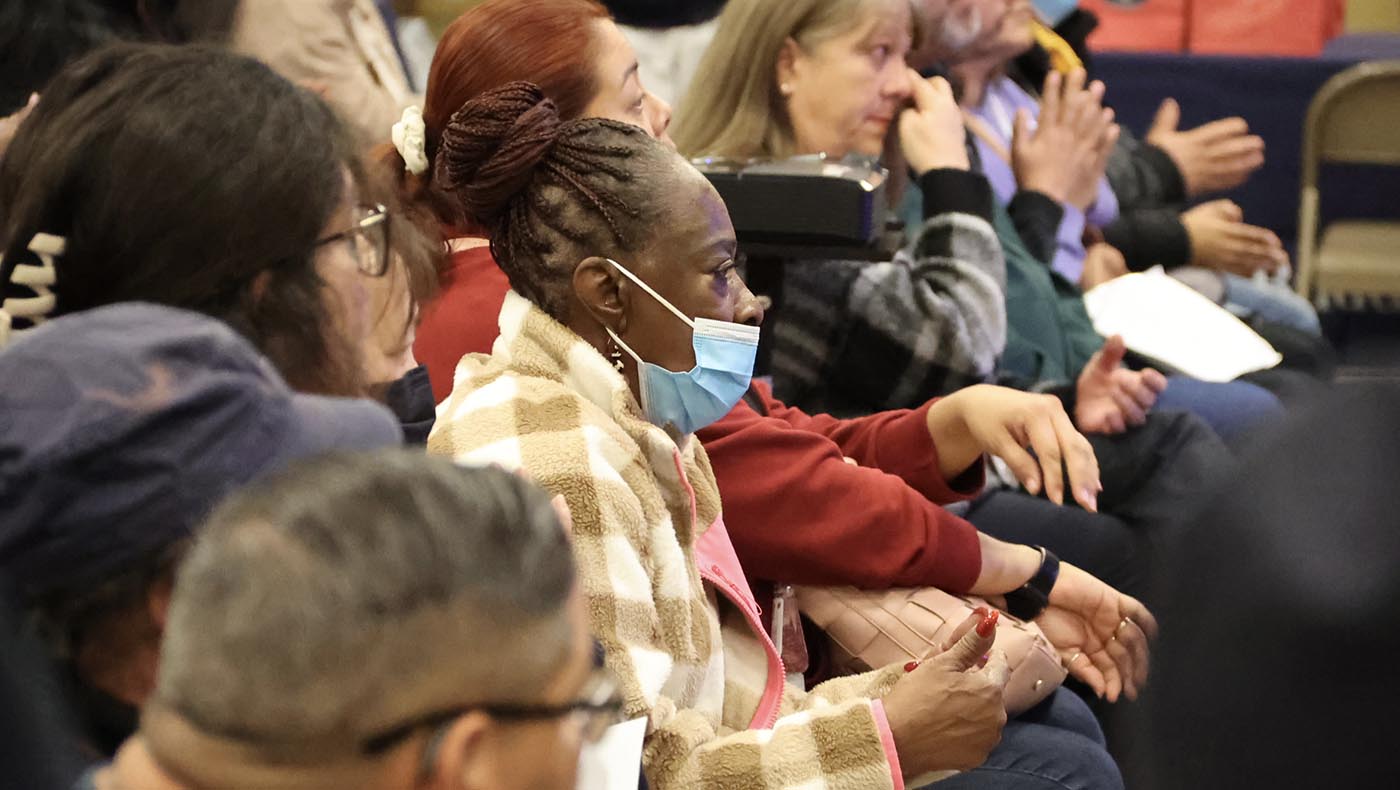
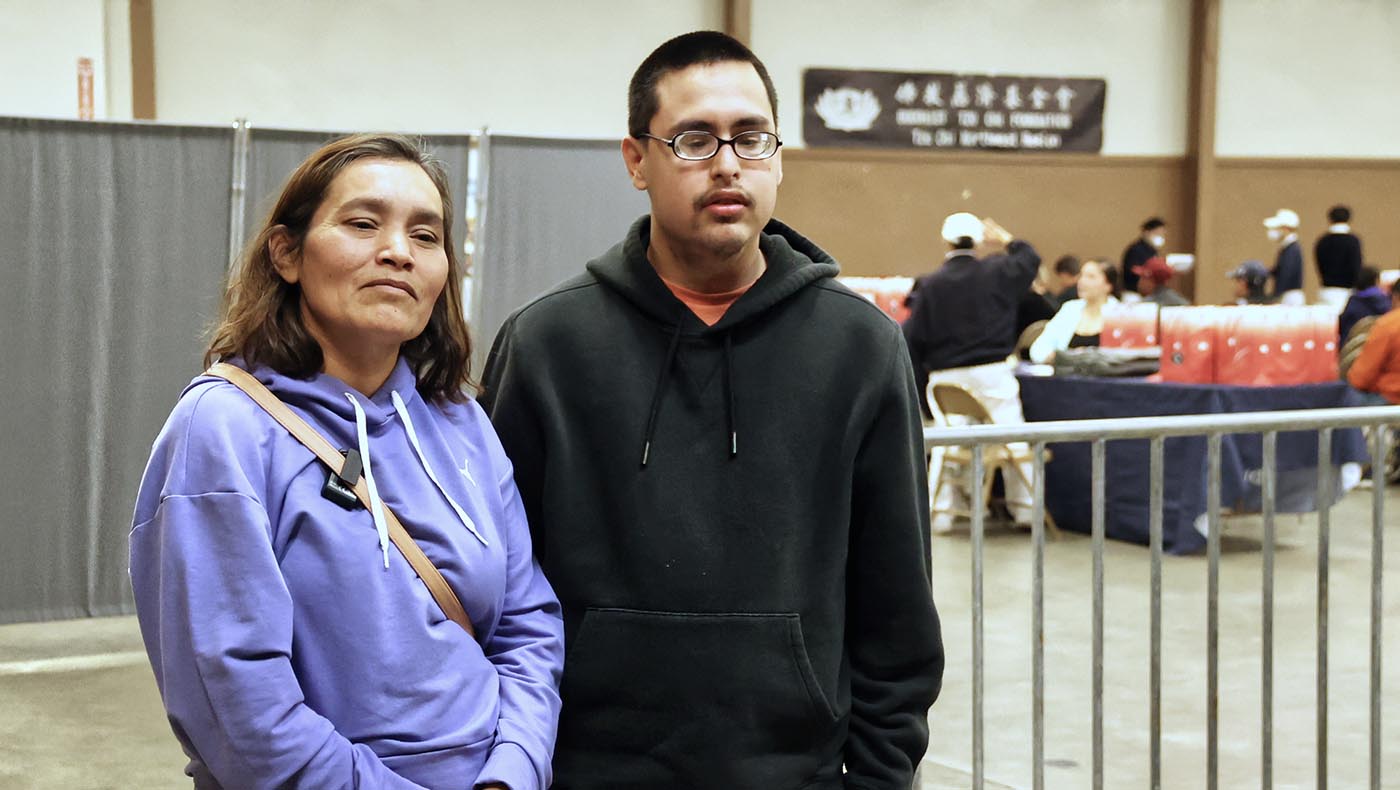
During the day, Tzu Chi USA provided $94,000 in cash cards, benefiting 135 qualifying households, either renters or homeowners whose primary residence was destroyed or severely damaged by the storms. Maria Guadalupe Renteria came with her oldest child, a 22-year-old son with special needs.
He has an intellectual disability. And I have three younger ones. I’m so thankful because we lost everything. We’re seven in the family, and this is a lot for us. I’m very grateful for all the help.
Maria Guadalupe Renteria
Tzu Chi Care Recipient
Many were already planning how they would spend the financial help. “One thing I’m going to buy is my couches that I lost in the flood; my kids love the couches,” Mercedes Perez declared joyfully, also adding that “I know my kids are going to be super happy because whatever they lost of toys, or you know, anything, [this] is going to help.”
Cynthia Hope Andrade and her husband, who had no place to live yet, had different plans. “We might just save the money till we know when we’ll get to move in. Because we lost our beds, refrigerator, stove, my washer and dryer got messed up, a lot of our stuff.” And Fabi, who had been so busy taking care of others in the community that she had put her own needs aside, immediately thought of essential transportation, “I’m going to use it to fix my car, which was flooded. I’m truly, truly very thankful.”
SHARE:
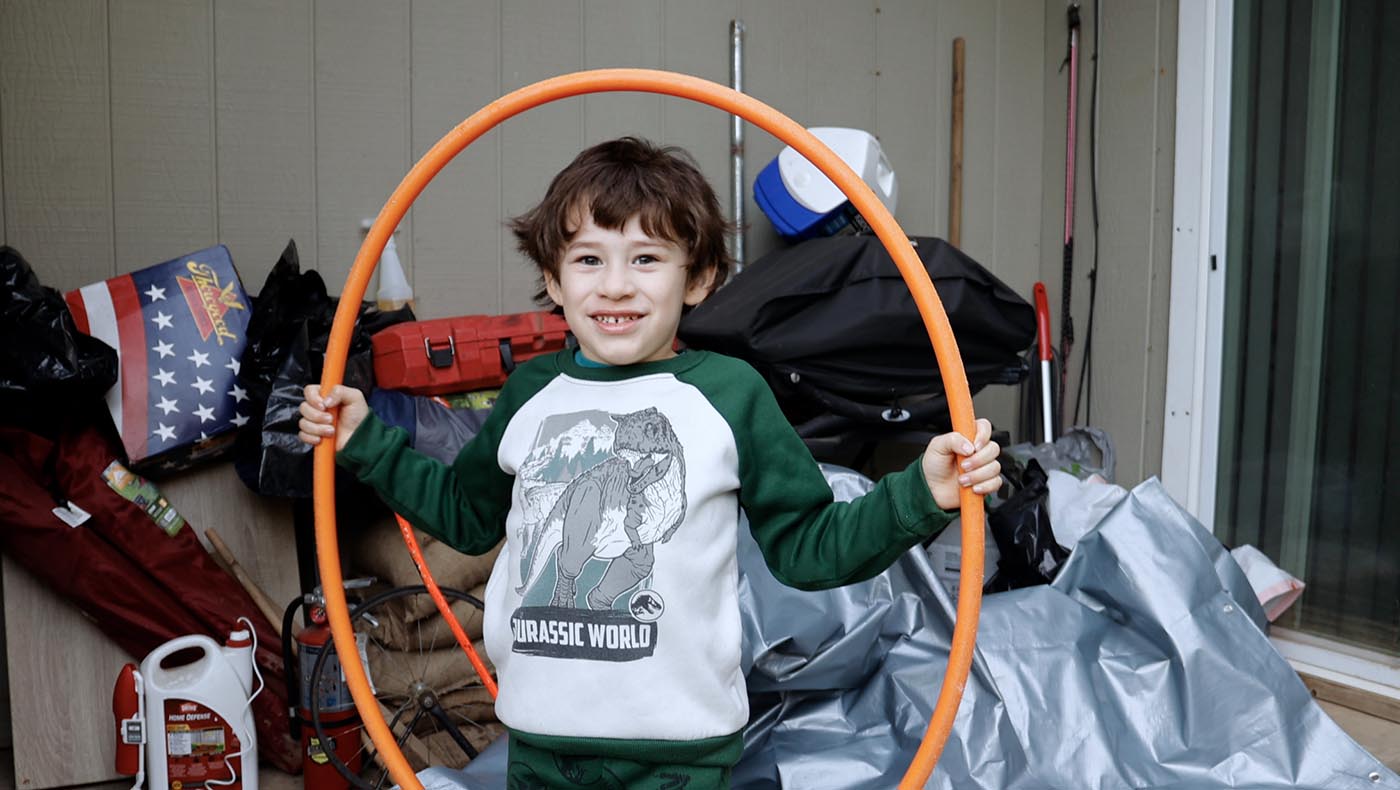
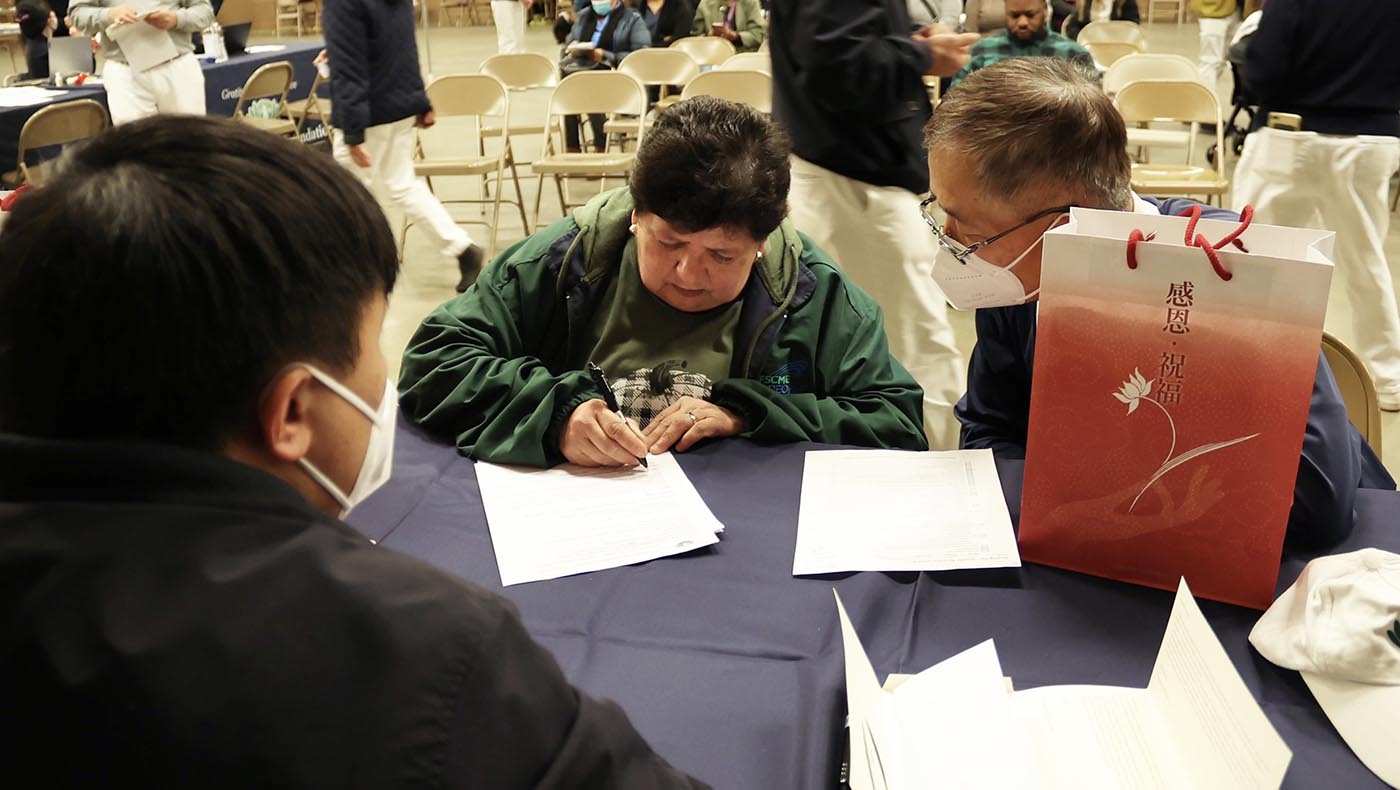
The community leaders helping the residents of Planada and Merced cope with the aftermath of the disastrous storms were equally grateful for Tzu Chi’s assistance, fully aware of the long and challenging road to full recovery the people here are facing.
I think people can feel it in their hearts when they see that people are helping. Sometimes it feels hopeless, right? But with the support and the compassion of the [Buddhist] Tzu Chi Foundation and others, even though it doesn’t make them whole, I think they feel a lot better, and I think the community will recover faster.
Rodrigo Espinoza
District One Supervisor
Merced County
SHARE:
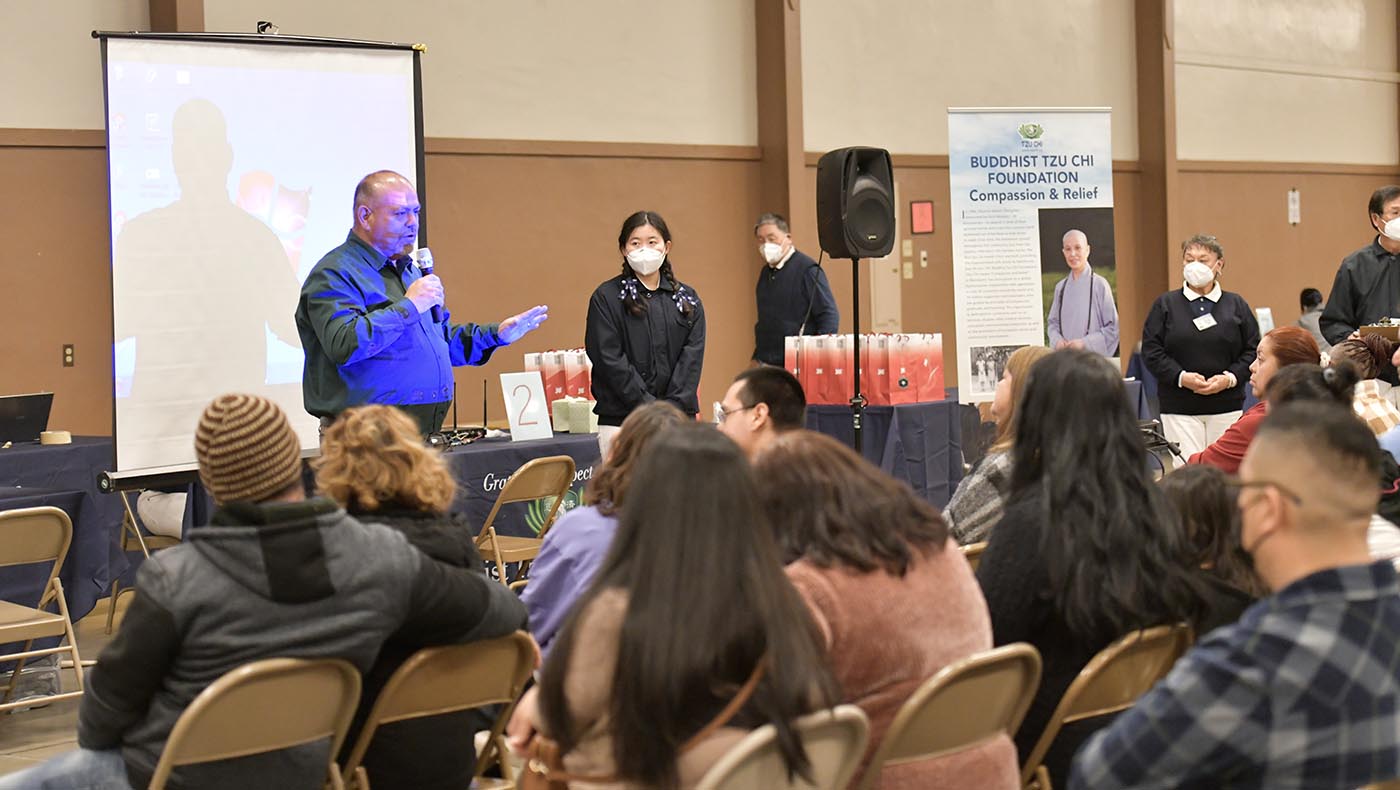
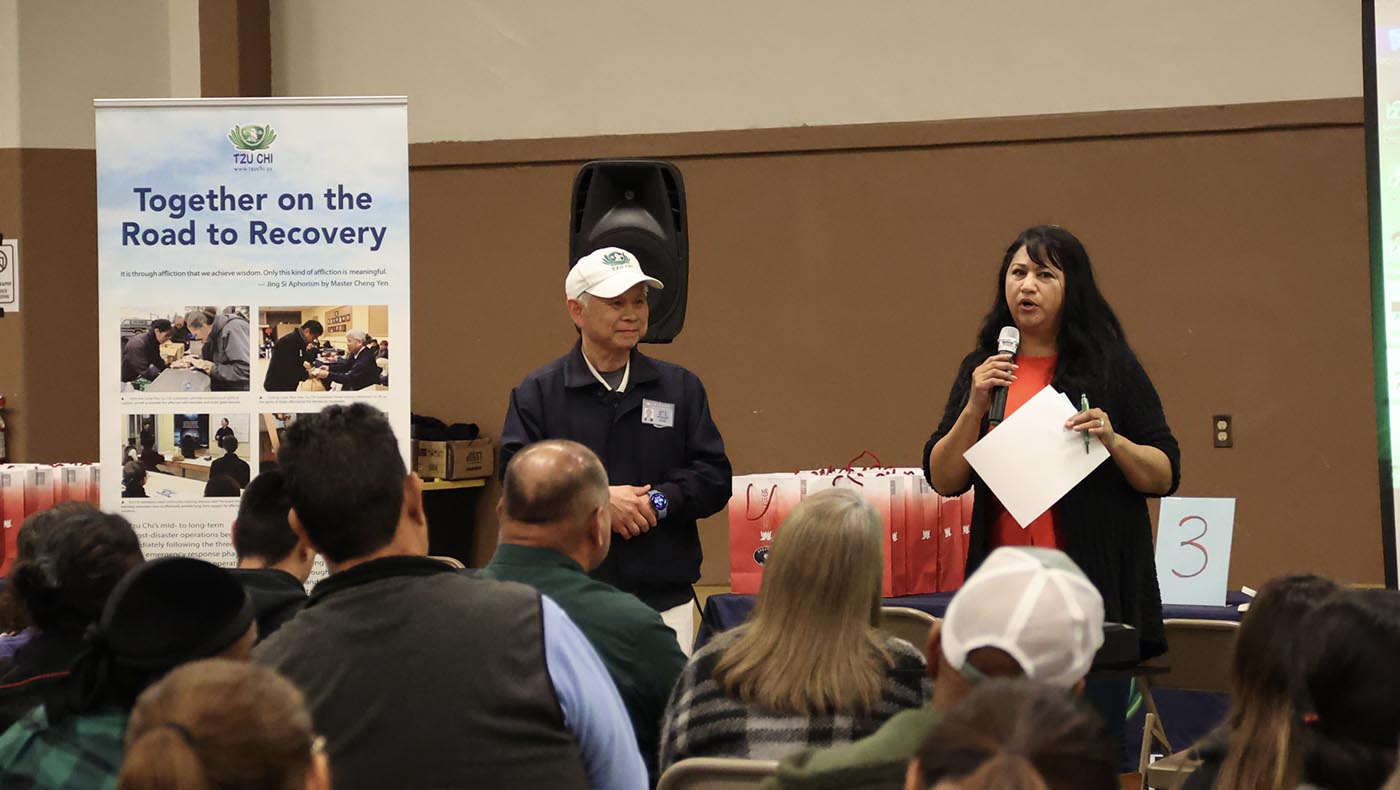
When addressing those assembled at the distribution, Fabi called for solidarity, saying, “I’m hoping our community stays together; we continue working together. We’re a small community; we can do this. We can surpass what happened.” She also thanked Tzu Chi USA Northwest Region’s Executive Director Minjhing Hsien, “He didn’t have to come to Planada. He didn’t, but he came because he cares and this is the way he’s showing his compassion.”
The Road Ahead
Tzu Chi USA Northwest Region volunteers returned to Yosemite Hall at the Merced County Fairgrounds the week after, on February 11, for a second disaster relief distribution. ABC30 Action News reported on the event, which Matthew Serratto, the City of Merced Mayor, attended and where he stated about Tzu Chi, “They’re not just providing monetary relief, but they’re also providing compassion, providing love, that’s a big part of their mission.”
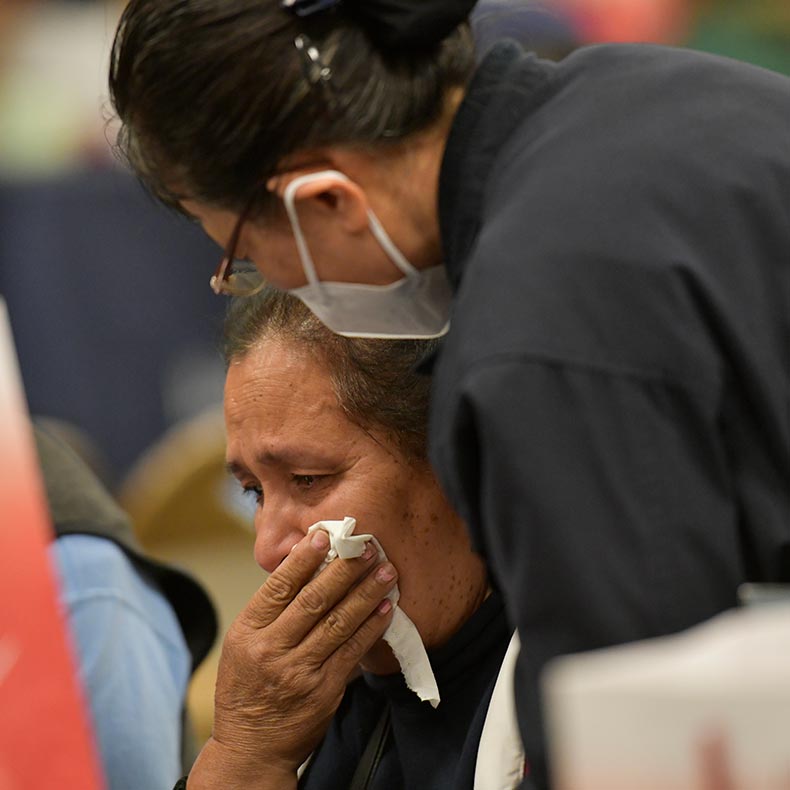
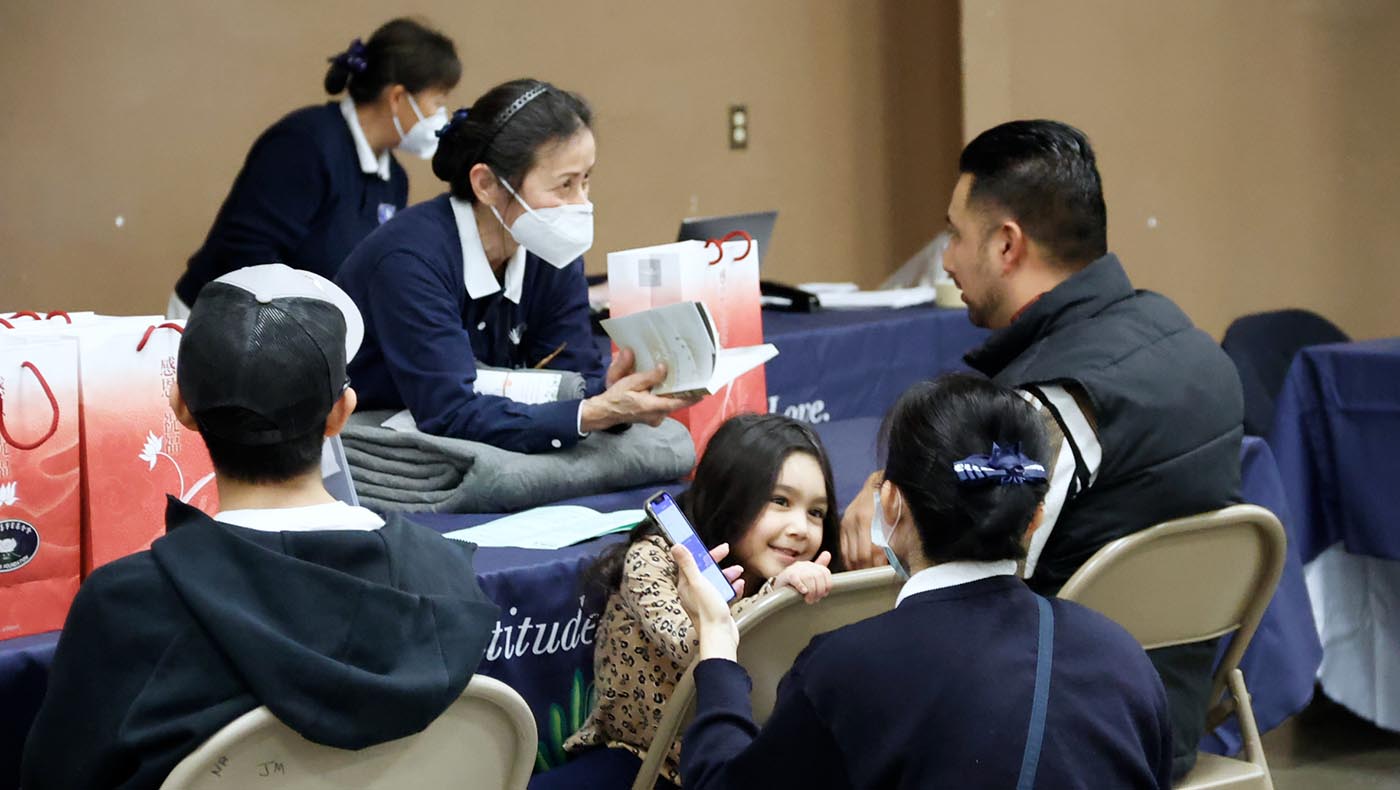
For Mayor Serratto, the emergency disaster response phase is over, “getting people out of their homes, getting people to safety,” which required the rescue of about 400 Merced County residents in one single night. “No injuries, no fatalities, no loss of life, so we’re really proud of that,” he announced, “but now begins the hard recovery phase.”
Serratto acknowledged the contribution of residents, “cleaning up their neighborhoods, cleaning their storm drains, cleaning out their garages and houses,” and of government, “all different branches, state, federal, city, county all coming together to try to help people.” “We’ve had a lot of volunteer efforts as well,” he said, “so many people doing big things and stepping up to help each other in this time of need.”
The Mayor also communicated Merced County’s gratitude for nonprofits and foundations such as Tzu Chi, for being “very generous, coming out here, being here at the fairgrounds, offering all kinds of people support, financial assistance, other things as well, and just bringing a lot of love and comfort to folks.” Serratto was thankful when learning that Tzu Chi had authorized $300,000 in direct assistance for the people here.
I love what the [Buddhist] Tzu Chi Foundation is doing. I almost want to be part of it – if I didn’t have all my duties and my jobs here. Being able to go around the world, go to different places, spread love, share your message, and just come into the really severely impacted places, bring resources, bring your spirit, bring your love, it’s amazing.
Matthew Serratto
Mayor
City of Merced
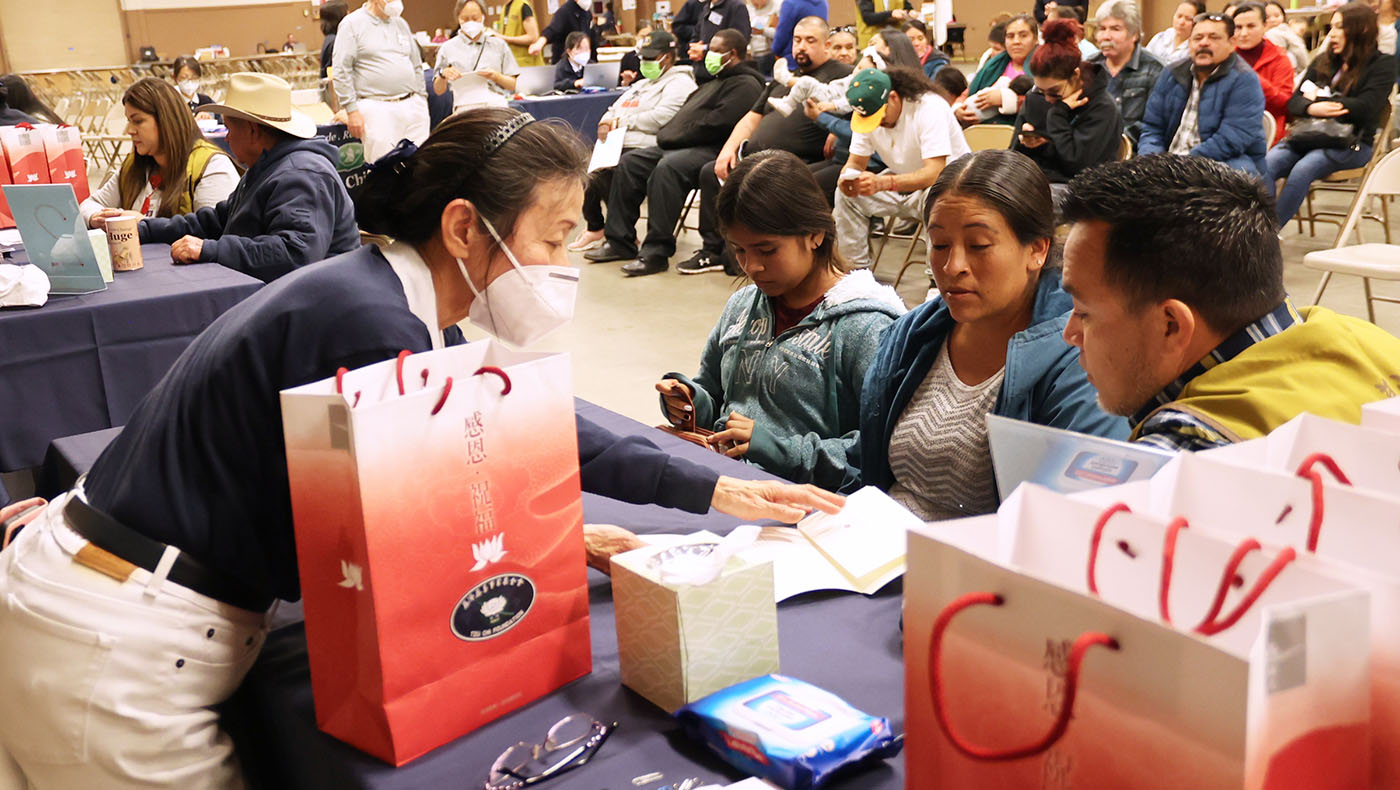
Regarding what lies ahead for Tzu Chi USA Northwest Region’s continued January 2023 California winter storm recovery mission, Minjhing Hsien plans to work closely with county supervisors and local community leaders in the affected areas since they know their situation best. Furthermore, the long-term plan will extend beyond assisting through FEMA and encompass aid in additional counties.
However, as the disaster area is so widespread, the needs assessment will no doubt be more arduous. “We have to go to many, many locations to actually talk to people affected, to see the homes flooded. So, we have to physically and personally visit a lot of places,” Hsieh explained. Despite such extra demands on their time, the Tzu Chi USA Northwest Region volunteer team is ready and eager to start as soon as possible, bringing Master Cheng Yen’s blessings and love wherever they go.
SHARE:
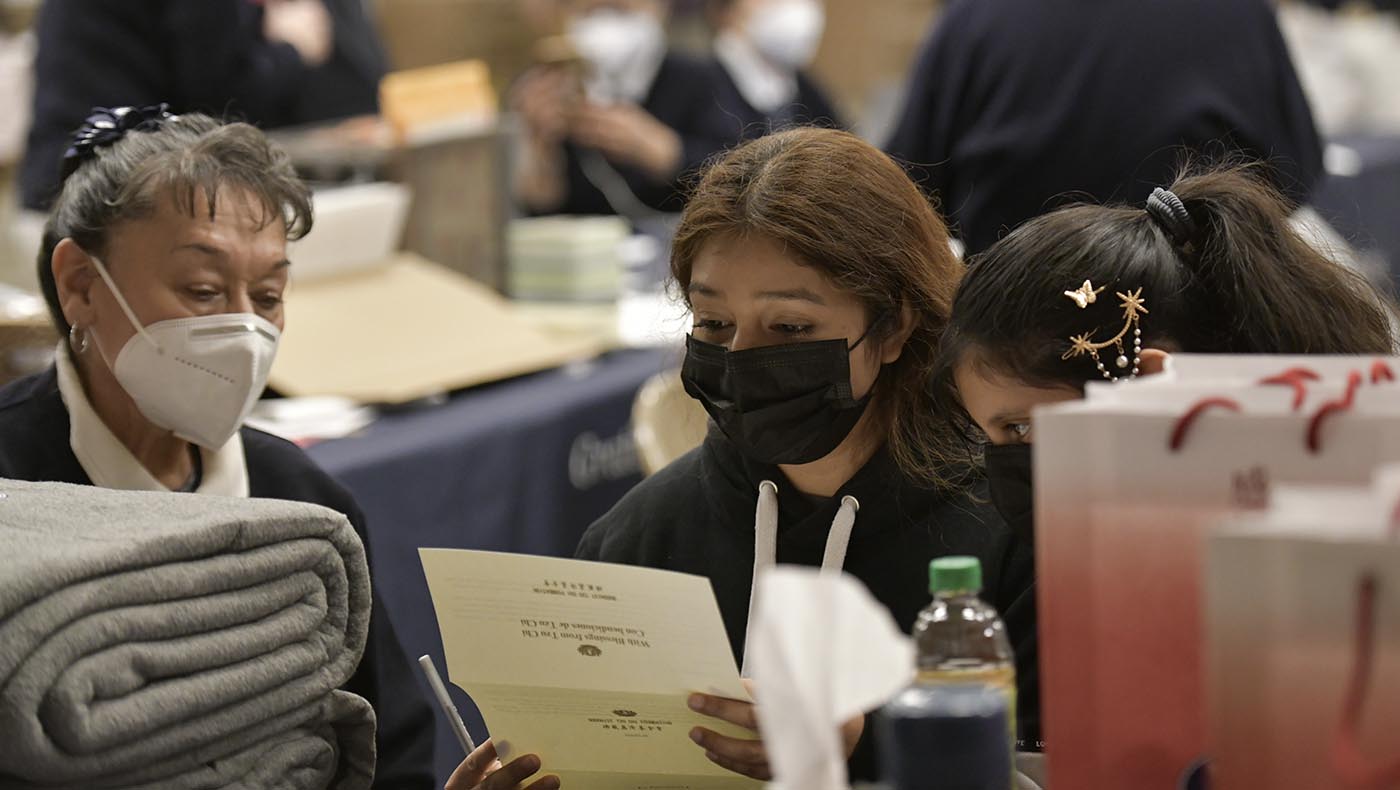
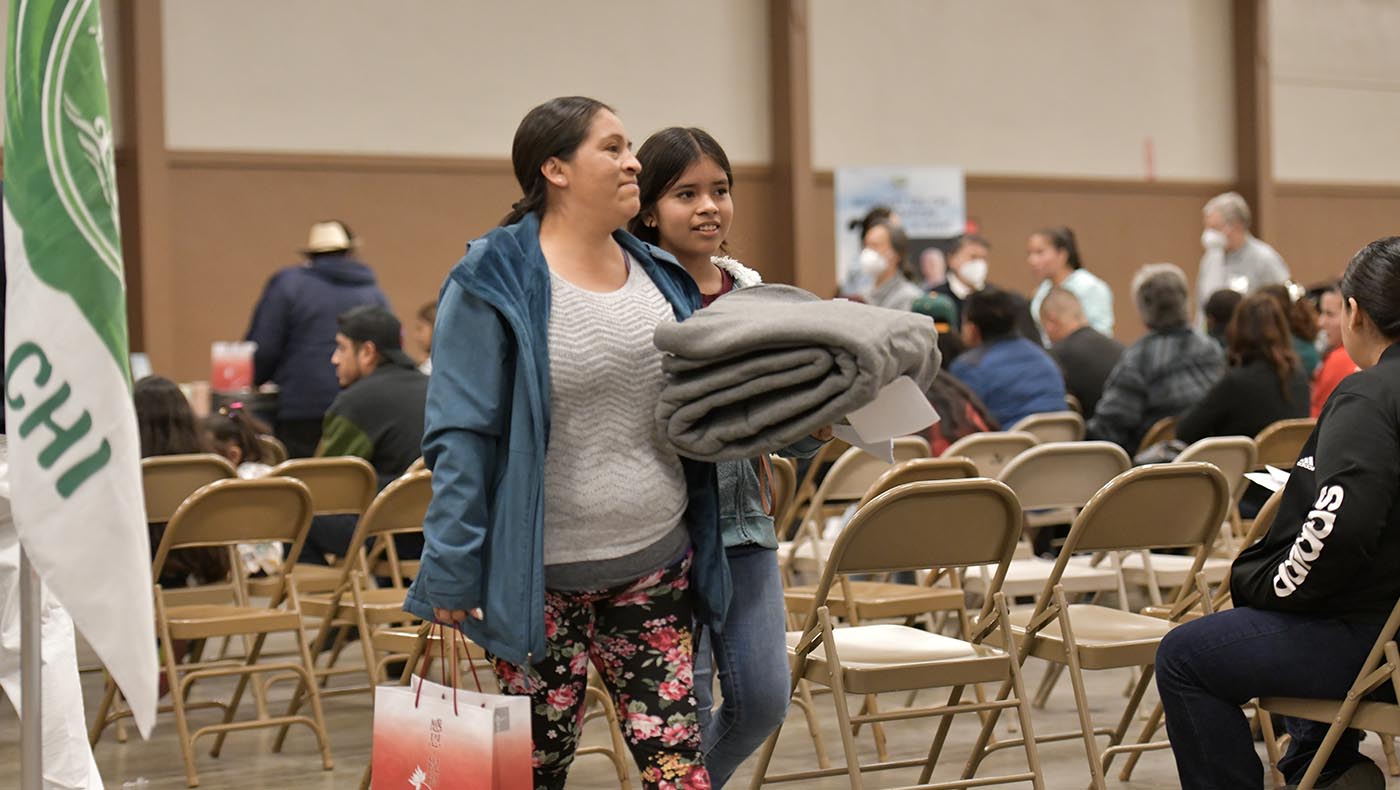
As for the winter storm-soaked Californians who are no strangers to disasters of various kinds in this so-called sunshine state, this water-borne catastrophe won’t drown their resilience. One might say Susan Devine spoke for them all when she stated, “I prefer to look at myself as a flood survivor, not a flood victim, and that is a major difference in frame of mind. And I’m getting to the point where I’m saying, ‘This is just a hiccup in my life.’ This is just a hiccup, and I go on.” Mercedes Perez echoed that outlook, urging all the disaster survivors, “Just keep going with a positive mind. Always keep your head up. No matter how it feels, like, ‘You lost everything?’ There’s always going to be hope.”
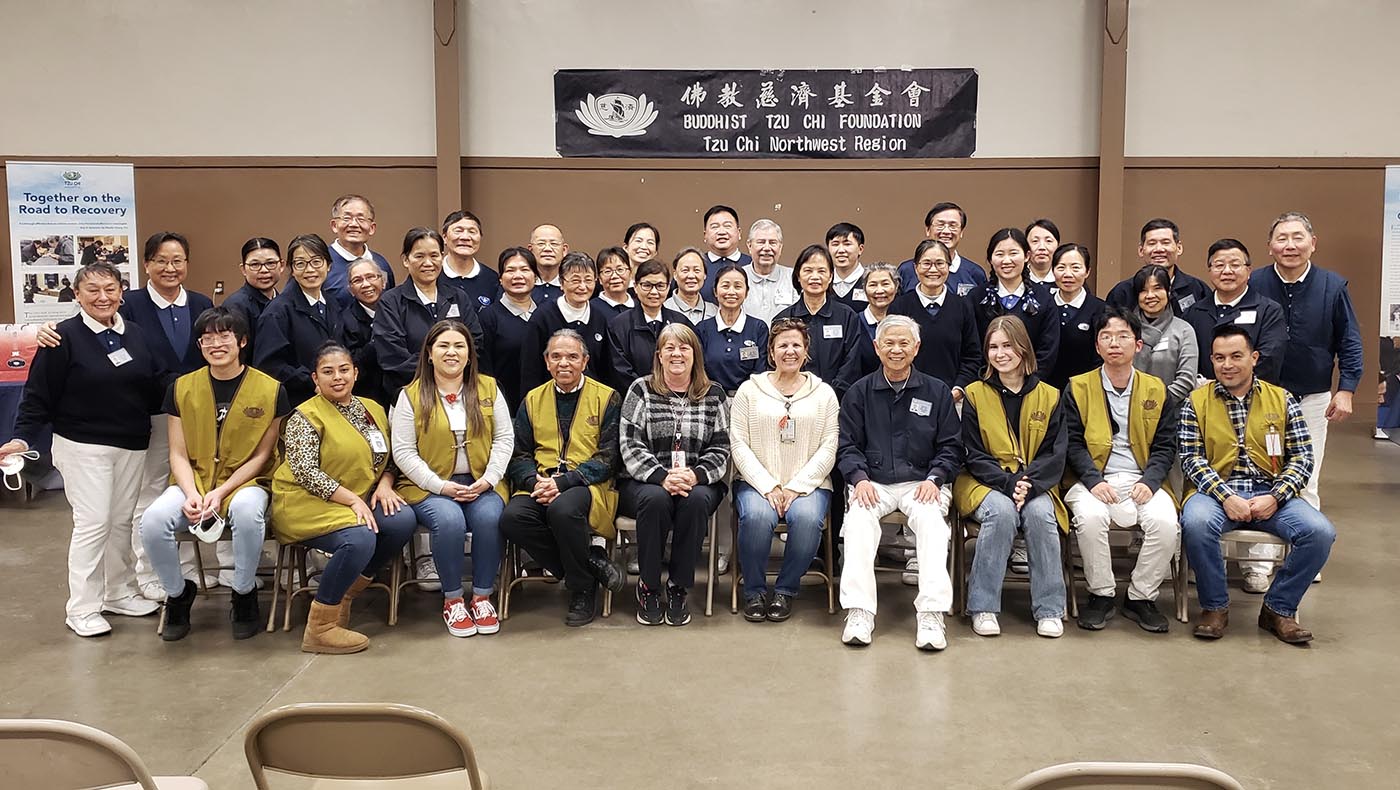
SHARE:

